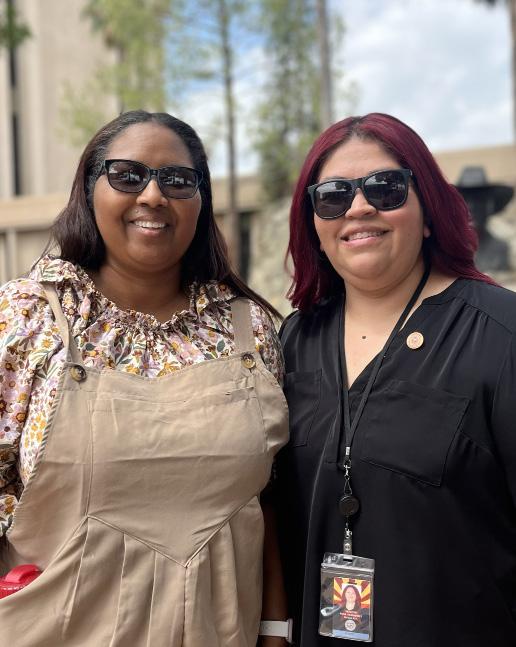

2024 IMPACT REPORT
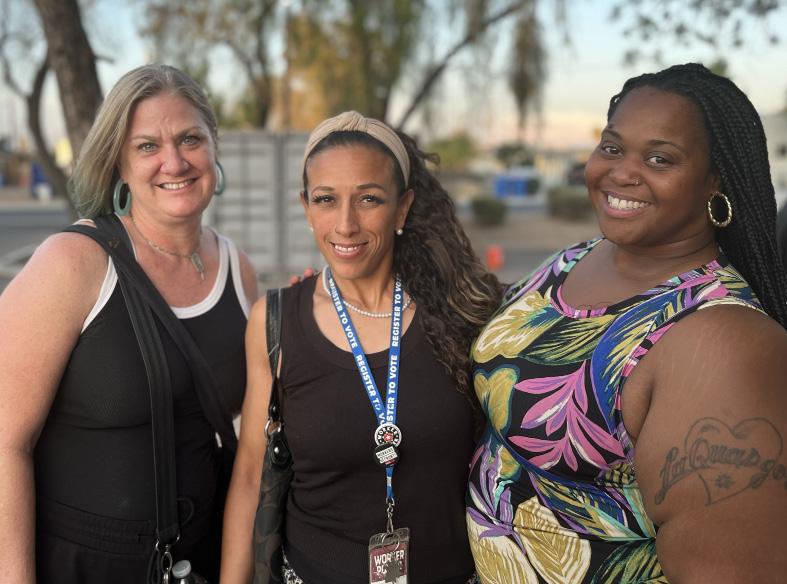
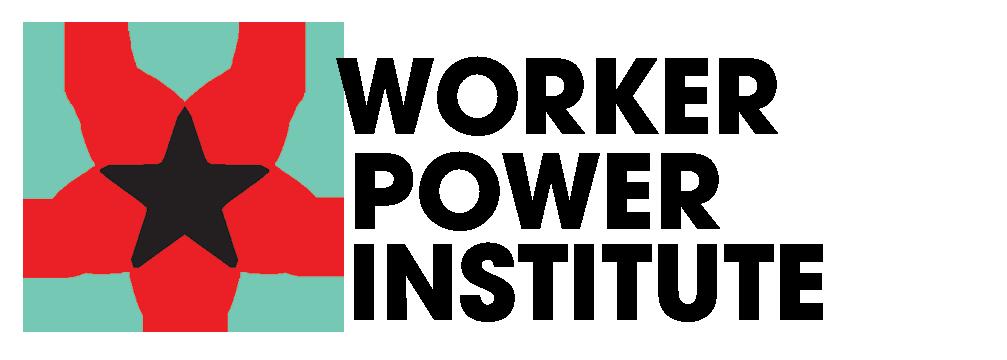



Worker Power Institute is a multiracial, multi-generational organization dedicated to achieving economic, social, and racial justice through community education, direct services, civic engagement, and policy advocacy.
Dear Friends,
We are entering a challenging era that demands courage and deep solidarity. The current Presidential administration has initiated a dangerous agenda: mass deportations, dismantling public services, and prioritizing billionaire interests over democracy and working people. In response, we must organize with greater urgency than ever—building worker power from the ground up to defend democracy.
In 2024, Worker Power Institute harnessed the spirit of collective action, engaging tens of thousands of people—especially young people and people of color—to shape their future through leadership development, civic engagement, worker organizing, and corporate accountability advocacy.
We deepened our power-building efforts by training 24 organizers through our month-long Leadership School. In Glendale, Arizona, we fought for livable wages via the Hotel Workers Protection Act and successfully challenged a $100 million tax break for VAI resort, stopping a 25-year abatement for the resort’s corporate developer.

In Phoenix, we partnered with the Grand Canyon Institute and UNITE HERE Local 11 to conduct a study on working poverty among 1,200 food service workers at Sky Harbor Airport, which uncovered startling levels of food insecurity, housing insecurity and racial disparities among these subcontracted workers at the City of Phoenix-owned airport. In response to this crisis of working poverty and discrimination among Sky Harbor food service workers, we supported workers when they pursued legal remedies with the City of Phoenix’s Equal Opportunity Department and the Arizona Attorney General’s office, by mobilizing hundreds of working people to public hearings, demonstrations and civil disobedience actions. In the end, Worker Power Institute’s efforts helped show that Sky Harbor food service workers were in need of historic wage and benefit gains and stronger antidiscrimination protections.

Finally, we challenged Wall Street’s unchecked influence through our Corporate Accountability in Private Equity program. We pushed the world’s largest pension fund, CalPERS, to reexamine investments with Advent International and prompted New Mexico’s public workers pension fund to announce they would not support further investments with Blackstone—the world’s largest private equity fund—over labor practices.
Deep, sustained worker organizing, along with robust civic engagement in strategic voter engagement and advocacy campaigns, remains the most powerful tool we have to confront injustice and build a democracy that truly serves working people. People like you make that work possible. Just as past movements overcame great odds through unity and courage, together we will face today’s challenges head-on. Thank you for your support.
In solidarity,

Beatriz Topete, Board Chair

Brendan Walsh, Executive Director
OUR WORK

In 2024, Worker Power Institute built power through leadership development, civic engagement, worker organizing, and corporate accountability.
Our Leadership Development efforts included the free, month-long Worker Power Leadership School — a program designed to build labor and political consciousness in rank-and-file workers by training the next generation of organizers who will lead winning field and advocacy campaigns and long-term movement building.
The Worker Power Institute’s Civic Engagement program aimed to increase participation among young voters and people of color — particularly women of color — with the goal of achieving equal participation and representation in government as that of older, primarily white voters in Arizona.
Through the Worker Rights and Organizing program, we partnered with social impact unions to provide direct support, advocate for a living wage, fight racism, and engage in deep base-building.
Our Corporate Accountability program challenged massive tax breaks to billionaire developers and addressed the detrimental effects private equity firms have on workers at the companies they own and control.


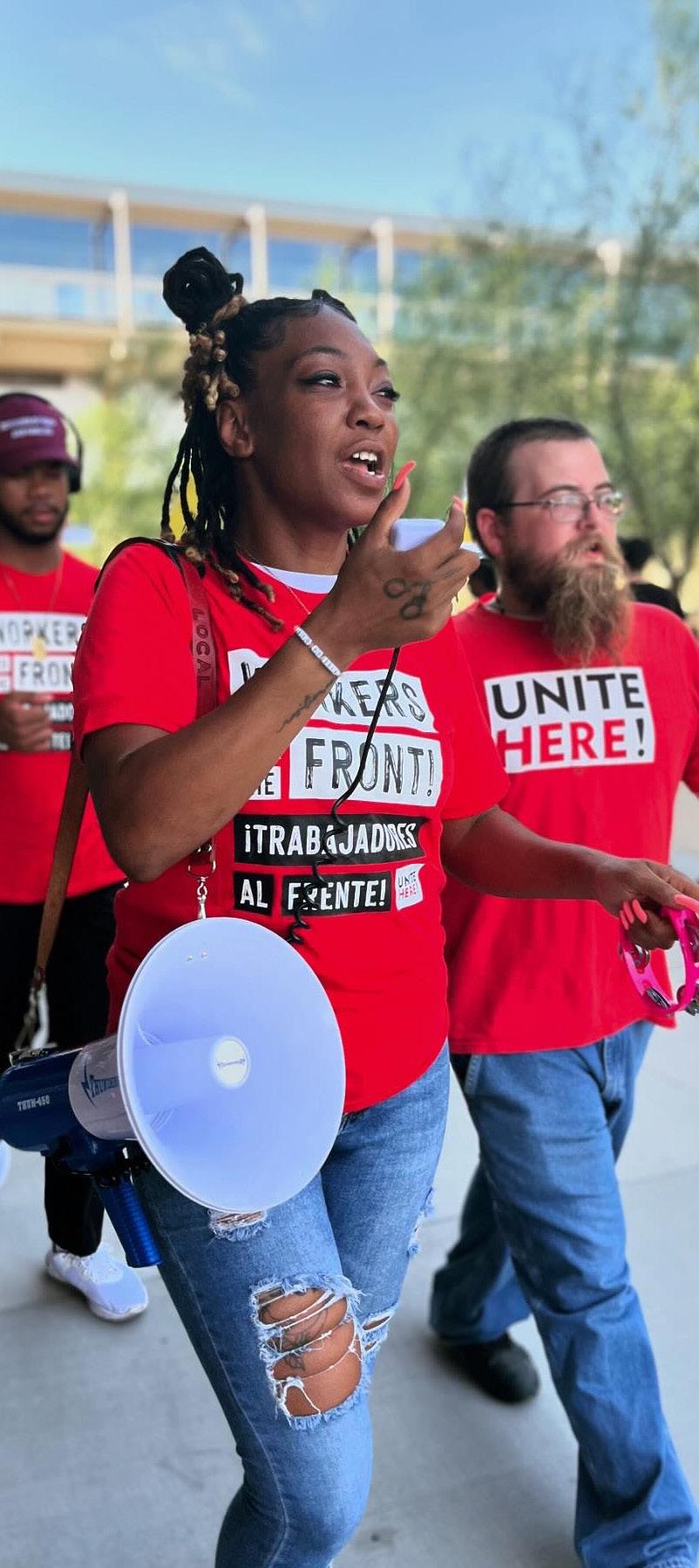
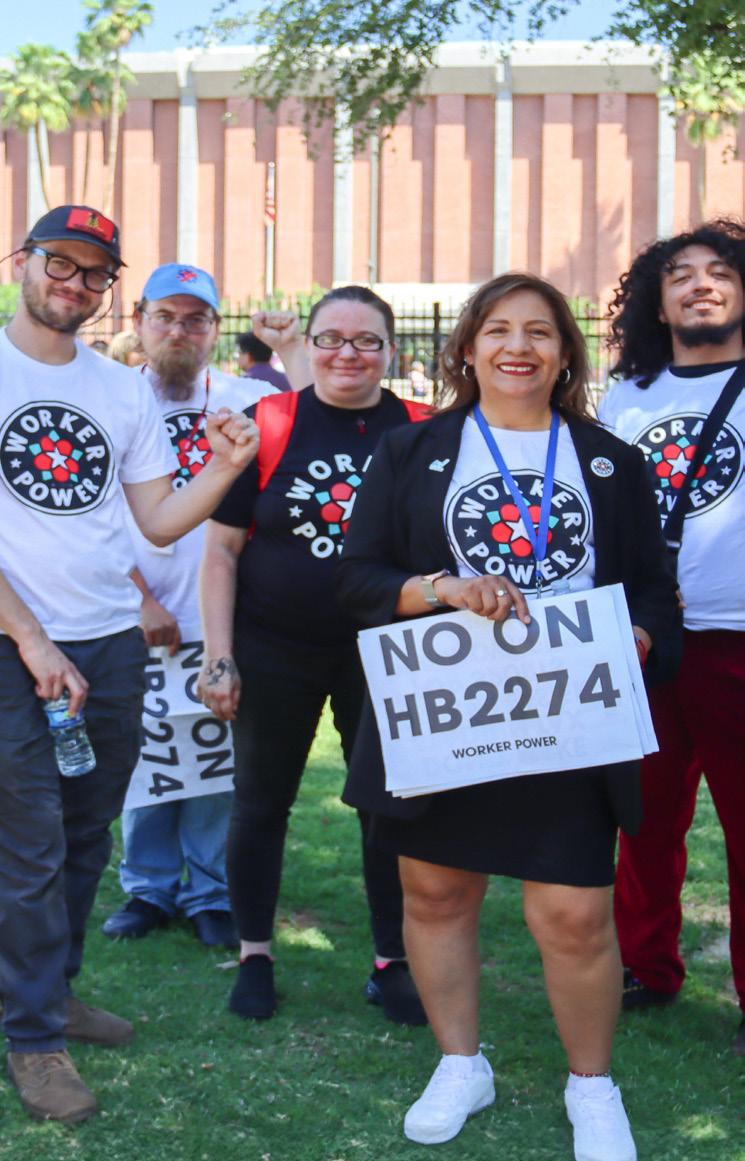
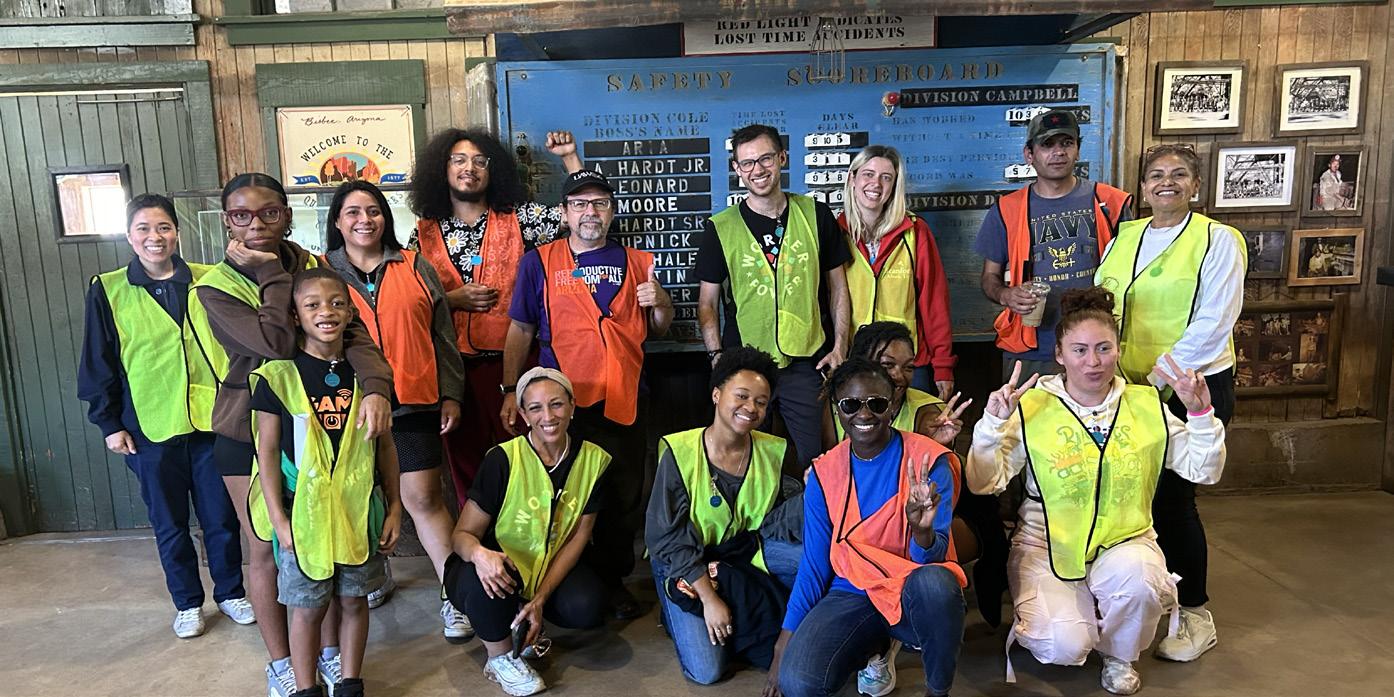
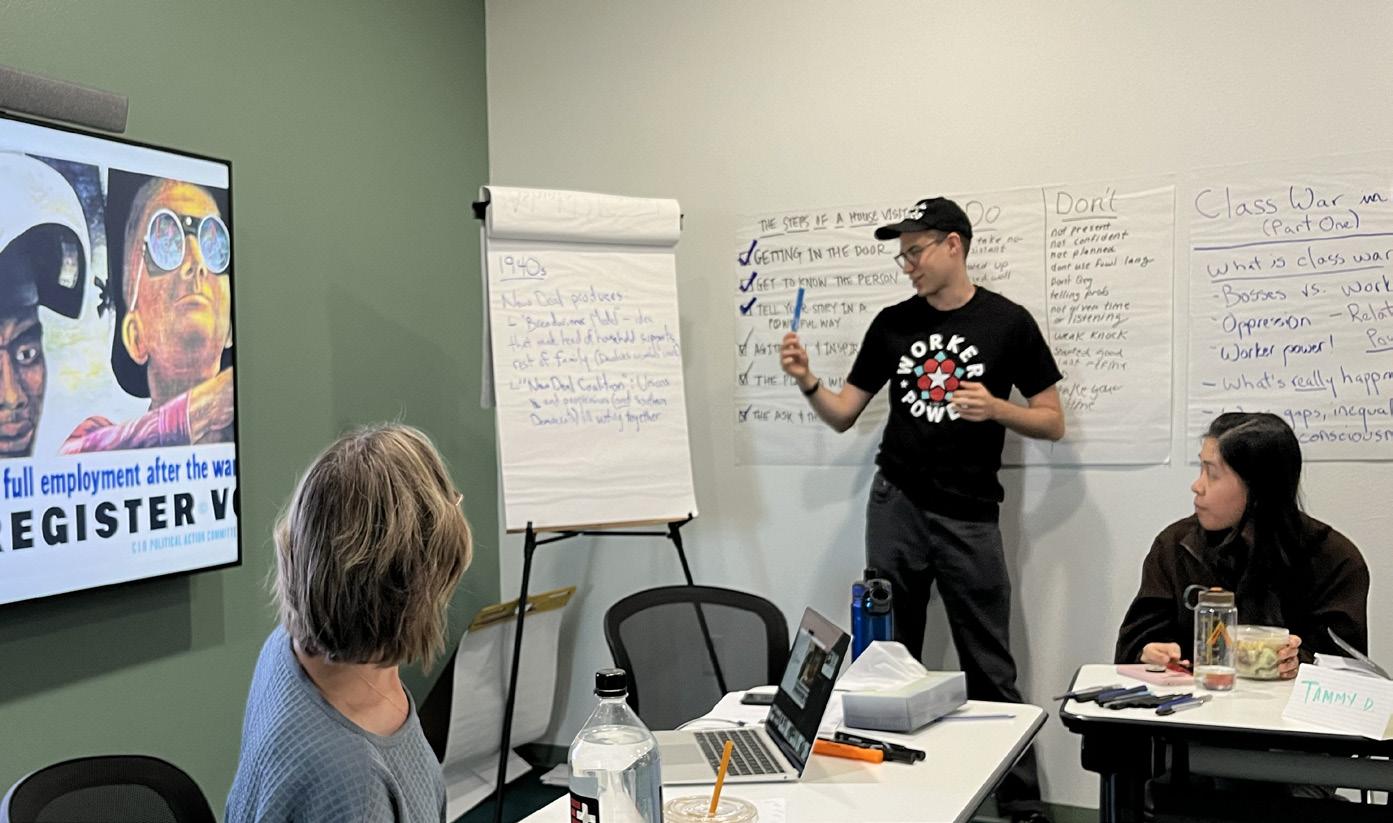
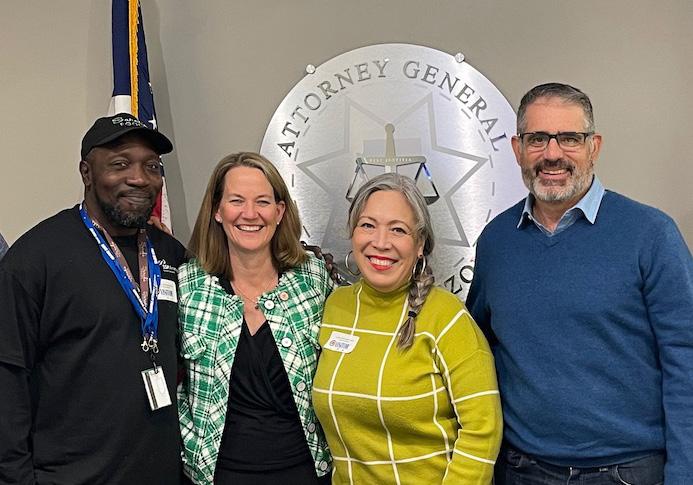

CIVIC ENGAGEMENT
Get out the vote

As voter suppression tactics evolve and structural barriers persist, increasing participation among underrepresented communities remains essential to building a multiracial democracy that reflects the will of the people.
In Arizona, we discourage voters from returning their ballots by mail after the Tuesday before Election Day. With the state’s shift toward in-person voting and ballot drop-offs, timely education and outreach is critical—especially for voters often excluded from traditional political engagement.
To meet that need, Worker Power conducted a phone bank targeting 120,000 women of color who had not yet voted three weeks after ballots were mailed in two key geographies. Half lived in low-turnout, Latino-majority precincts in Phoenix; the other half were in rural Pinal County, a region canvassers and vendors struggled to reach in October.
We reached 28,000 voters through live conversations—a significant and strategic step toward increasing New American Majority participation in Arizona elections.
Our GOTV campaign helped close critical outreach gaps, ensuring more voters of color—particularly women—were informed, empowered, and heard at the ballot box.

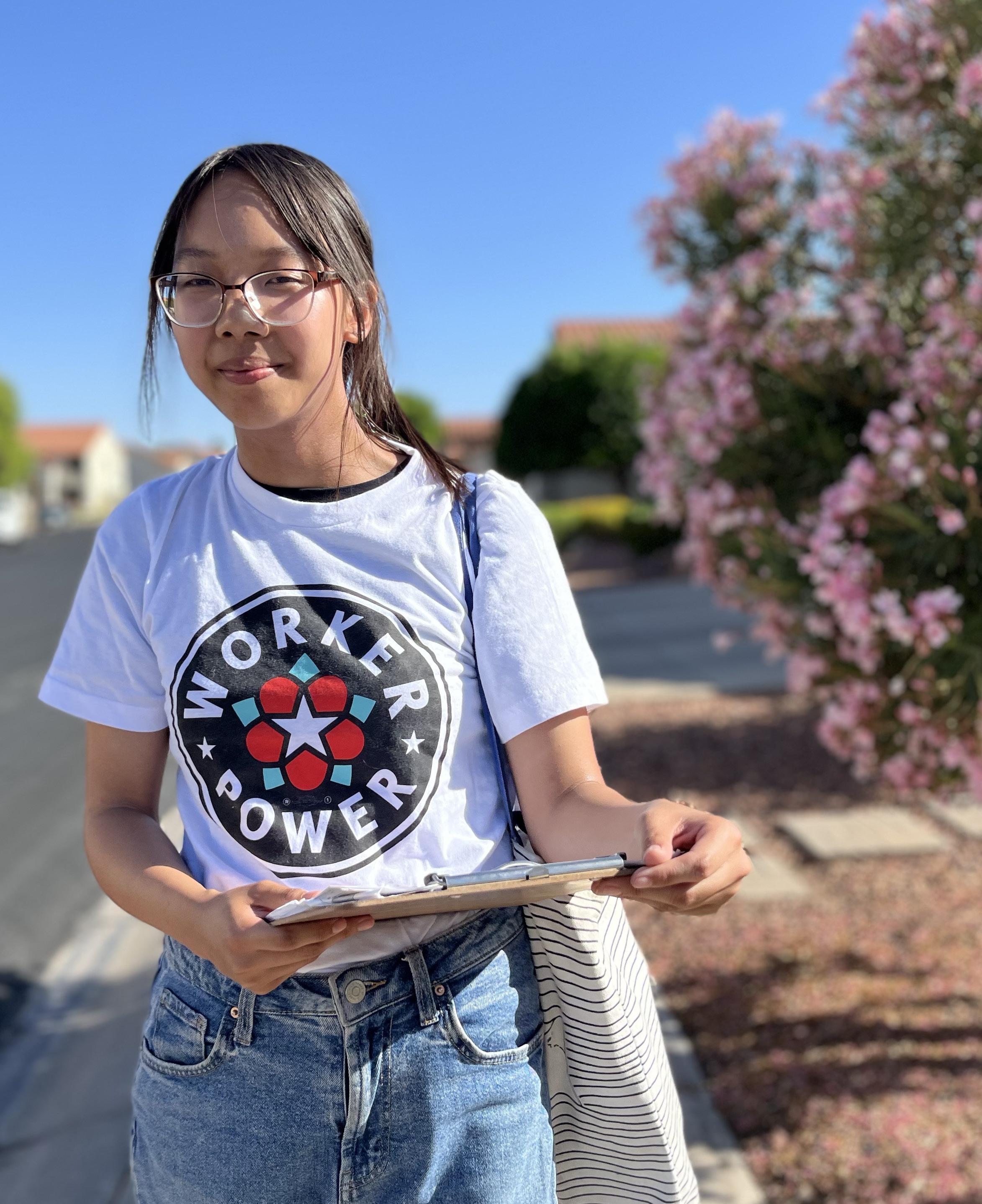
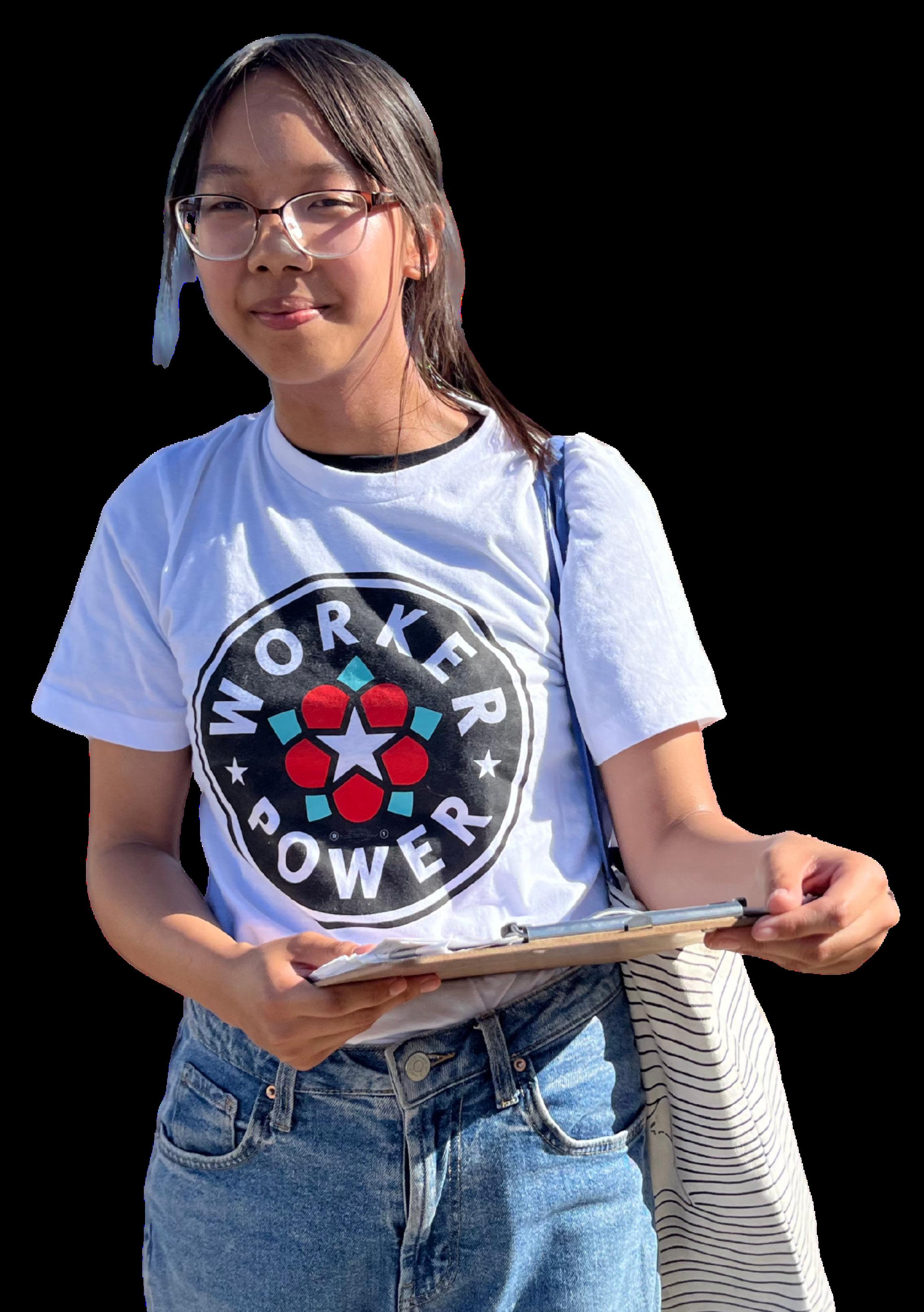
WORKER POWER
People

MAGGIE ACOSTA FIELD DIRECTOR
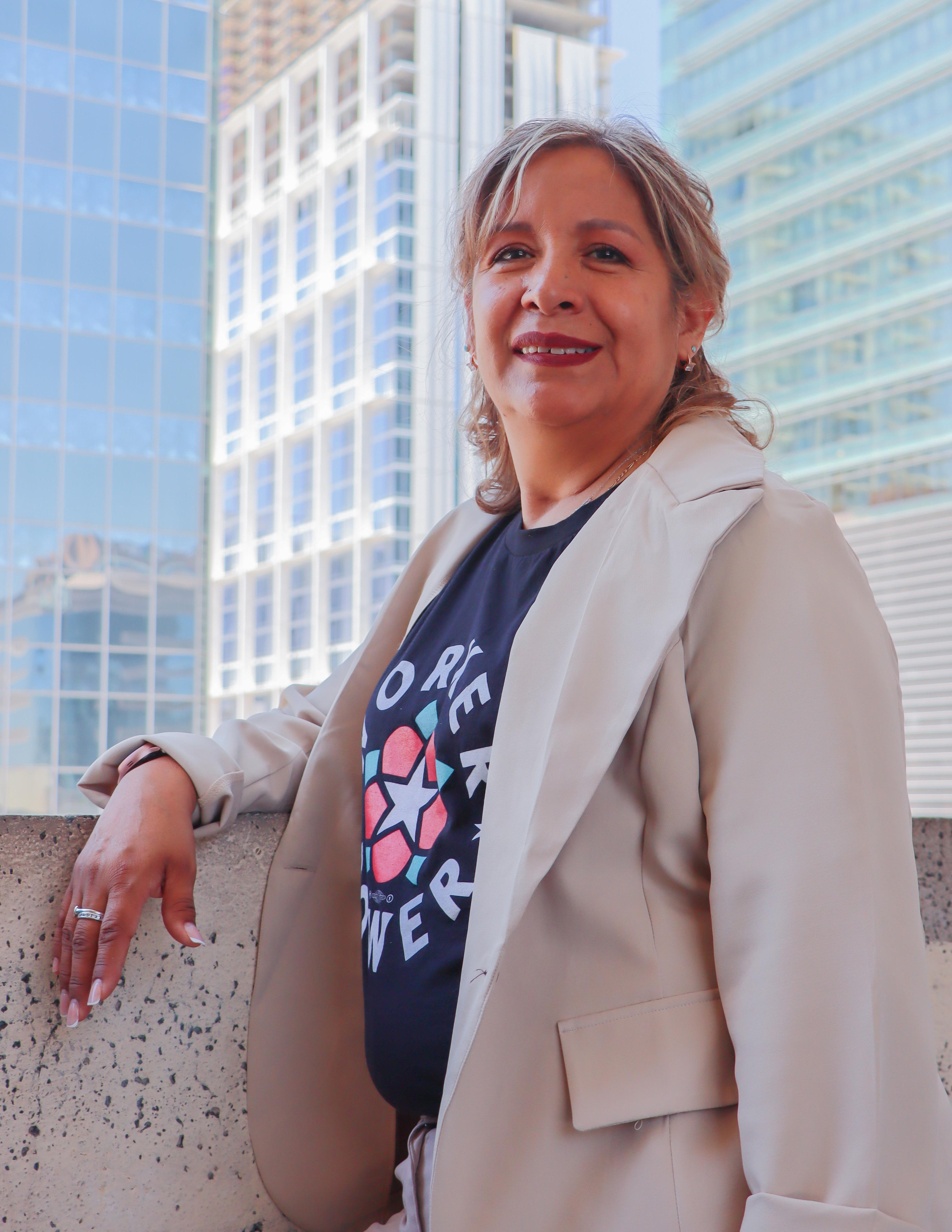

When Maggie Acosta was 14, her family decided to leave Mexico and seek a better life in the United States. A native of Chihuahua, she already spoke English and had a babysitting job waiting for her in Mesa, Arizona. Her father looked forward to starting his job on a ranch in New Mexico. But lacking the immigration papers needed to cross the border safely, they had to walk through the Sonoran Desert wilderness and risk their lives to enter the United States.
Maggie’s father, a member of the Apache nation, knew the land they traversed well and did not take any guides with them. Her father cautioned his children to step on rocks as much as possible to hide their tracks and to watch out for rattlesnakes. Two nights later, the family crossed the border safely.
“Reaching more people from underrepresented communities has been a personal goal of mine. As a woman of color, I am incredibly proud to be doing this work.”
After arriving in the U.S., Maggie worked as a nanny for Mexican American families across Arizona, New Mexico, and California. She eventually married, became a U.S. citizen, and raised two sons while holding various low-wage jobs. But it was at a food service warehouse job— preparing meals for airlines and Starbucks—that Maggie first learned about her right to advocate for respect and fair wages in her workplace.
Due to the company’s cold food preparation environment, Maggie and her coworkers needed proper attire to avoid frequent illnesses, which they were denied. Their stagnant wages and inadequate compensation added to the unfair treatment. Frustrated, Maggie joined UNITE HERE Local 11. Her organizing helped win better pay, protective gear, and workplace safeguards. The experience was transformative.
In 2017, Maggie took leave to become a union representative and joined voter outreach efforts with Worker Power (then CASE). She rose quickly from canvasser to team leader and then to Deputy Field Director in 2022.
Today a Field Director, Maggie leads Worker Power Institute’s voter engagement programs in Phoenix and Tucson. She has trained dozens of canvassers and organizers and helped shape labor-rights political leaders. In 2024, she expanded our voter registration work in Southern Arizona, where over 70% of those registered by her team were people of color.
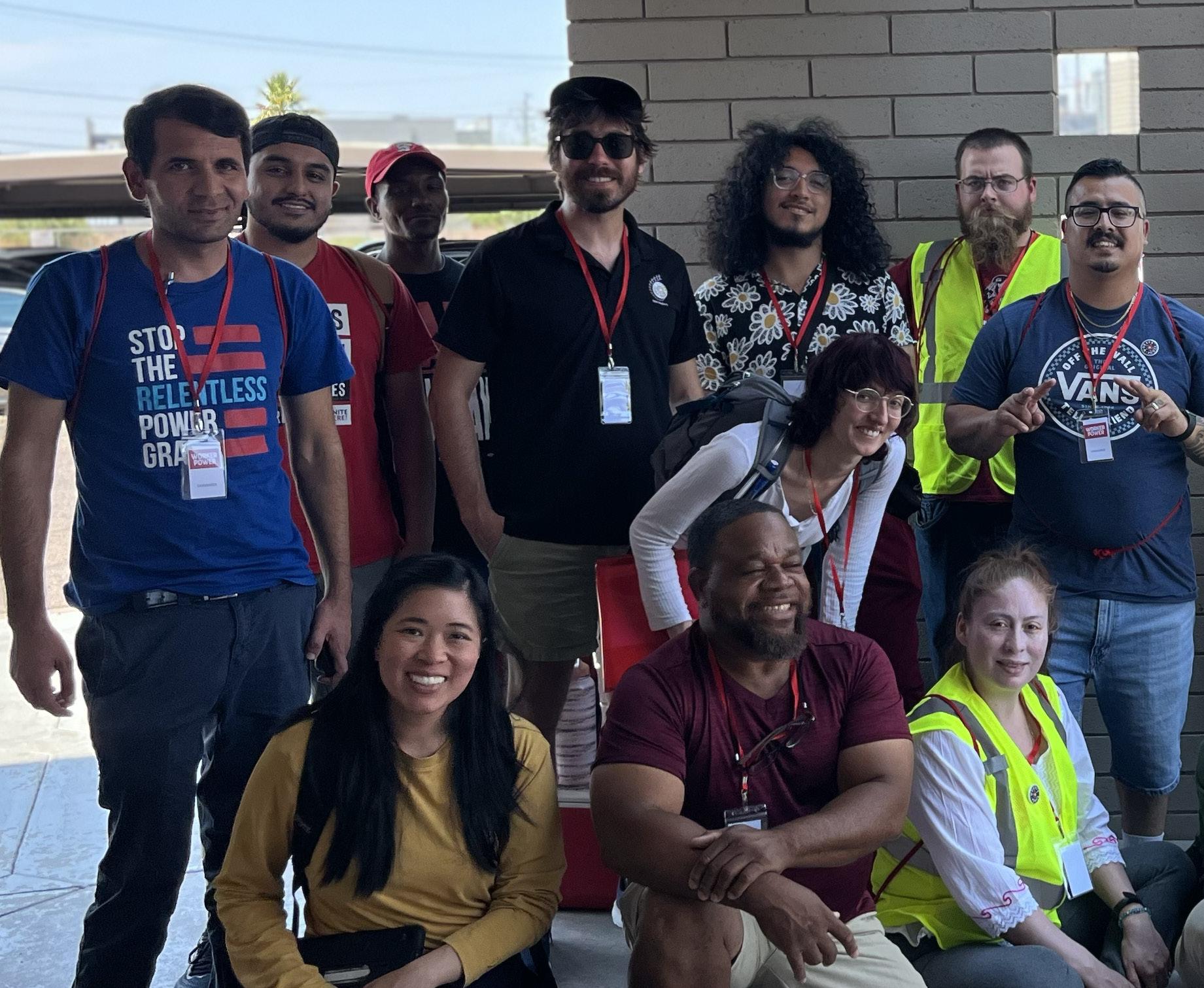
WORKER POWER LEADERSHIP SCHOOL
LEADERSHIP TRAINING AND POWER BUILDING
Over four weeks in July and August, Worker Power conducted the second cohort of the Worker Power Leadership School, a free, monthlong, in-residence training program designed to build the next generation of organizers.
Conducted in partnership with UNITE HERE Local 11 - a hospitality union with over 30,000 members in Southern California and Arizona, Worker Power Leadership School is a vital investment in developing rank-and-file worker leaders who not only understand the systemic forces shaping our democracy but are equipped with the organizing strategies needed to transform them.
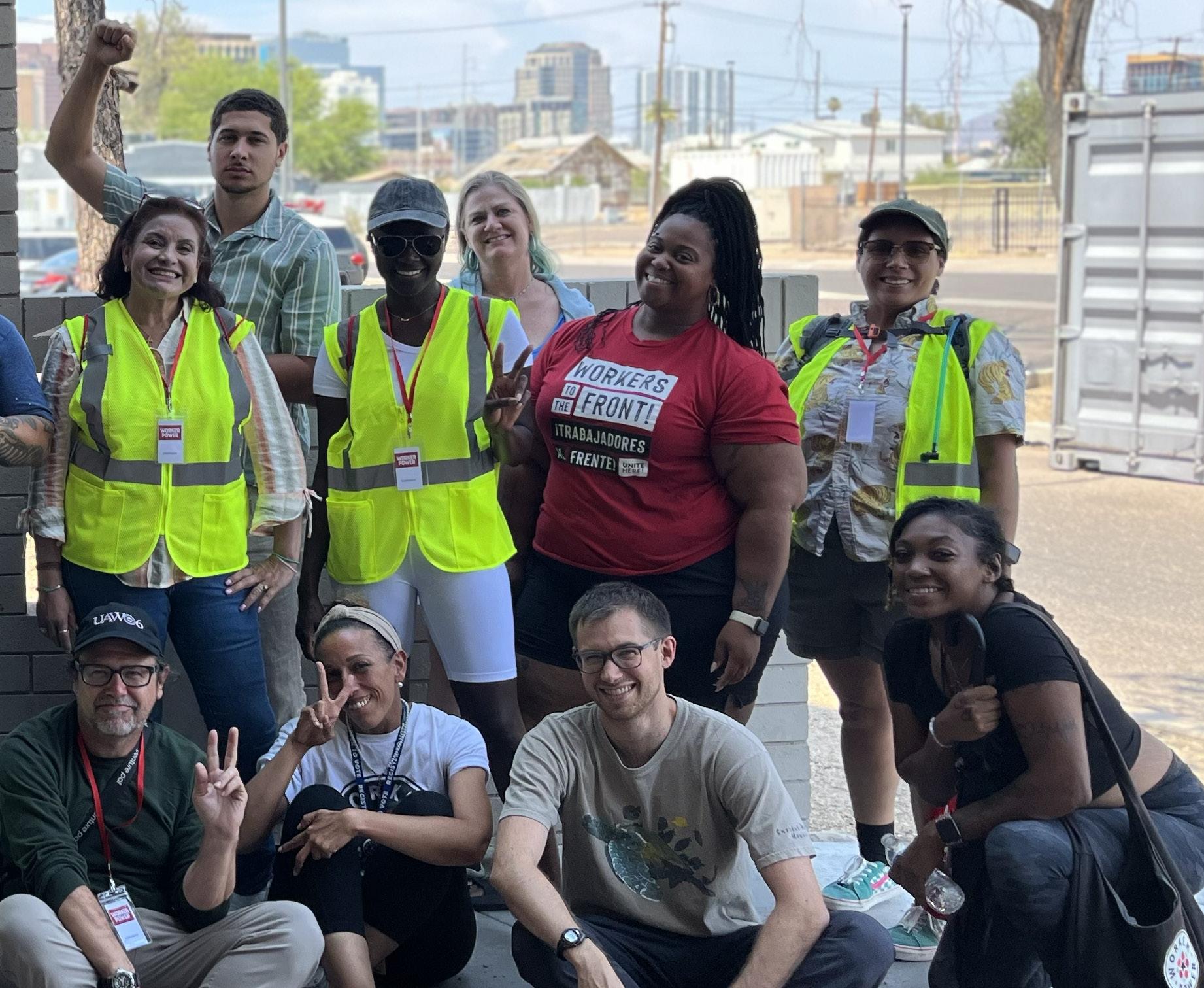
Amid a critical election season, 24 students - 75% of them people of color - received 150 hours of intensive classroom and field-based training led by veteran labor leaders, organizers, and academics at Worker Power’s office in Phoenix, Arizona.
Students studied the economics of oppression, the history of racism and civil rights in the U.S., and labor’s essential role in raising living standards for working families.
Through multiple days of hands-on campaign fieldwork, students gained real-world experience during an election—learning to canvass effectively, mobilize voters to return ballots, and follow up until votes were cast. All of the graduates served in critical field and administrative roles during
the election, training over 200 canvassers on voter mobilization, organizing and community education. Following the election, Leadership School graduates successfully took their skills back to their home organizations and workplaces to continue their ongoing advocacy work..
By building skills in political education, strategic campaigning, and direct voter engagement, the Leadership School cultivates leaders who connect daily struggles to broader social and political movements. Over time, these trained organizers will anchor fights for living wages, labor rights, racial justice, and a more inclusive democracy—strengthening the labor movement for generations to come.
FACULTY SPOTLIGHT

DANIEL JUDT PROGRAM COORDINATOR

Daniel is a history PhD student, a teacher, and a union organizer at Yale University. He is also a veteran canvasser and canvass leader in Worker Power’s voter engagement programs in Arizona and Georgia. Now Daniel is putting all of those experiences to work in developing the Worker Power Leadership School curriculum. This curriculum, inspired by the labor colleges of the 1920s and 1930s, benefits from Daniel’s historian’s eye and organizer’s passion.
“Many of the activists who defined the American labor movement and Civil Rights movements during the New Deal era and the 1960s employed strategies born in discussions with peers and mentors at labor colleges and movement schools. We at Worker Power feel that now is the time to create a similar space for a new generation of labor and civil rights leaders.”
In designing the Worker Power Leadership School curriculum, Daniel made sure the

school took advantage of the students’ broad spectrum of perspectives and experiences to the table, creating a unique and powerful learning environment. Regardless of their educational background, all students have the opportunity to learn from renowned professors from across the country and immediately apply their learning to effect change in their home communities as leaders of urgent organizing and electoral campaigns.
“I hope that students come away from the school with a better understanding of how the world came to be organized as it is: what forces of oppression we are fighting against, how they work, and the opportunities available to combat the reactionary forces that are advancing a very dark vision of America’s future. We are creating an environment where a new cadre of leaders can propose and begin to build a new and more inclusive vision for our future.”
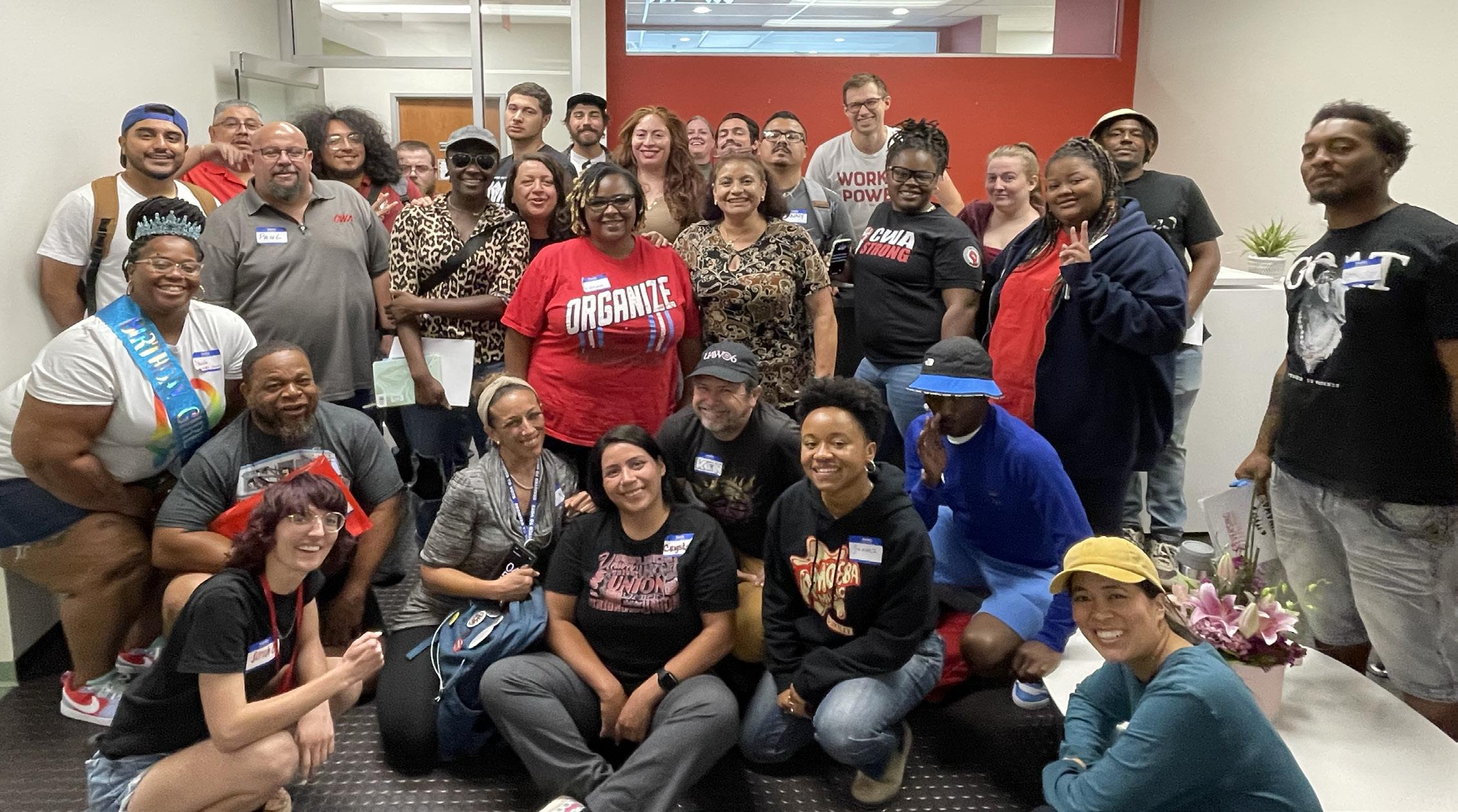

CLASS OF 2024

The 2024 cohort of Leadership School students represented a wide range of experiences, both within organizing and outside of organizing.
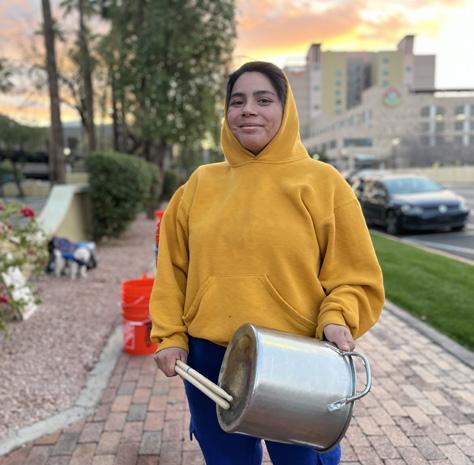



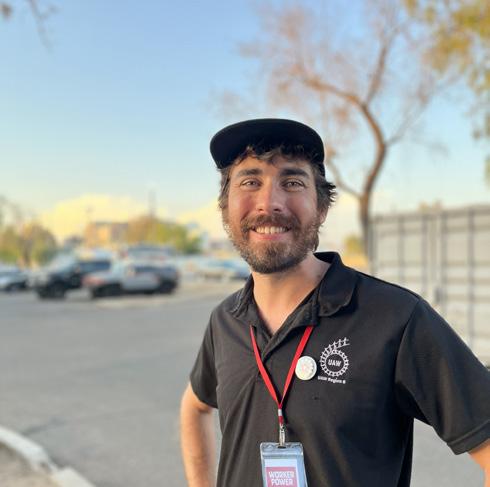

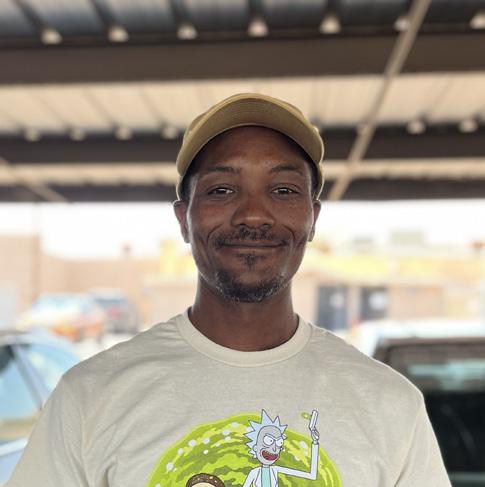

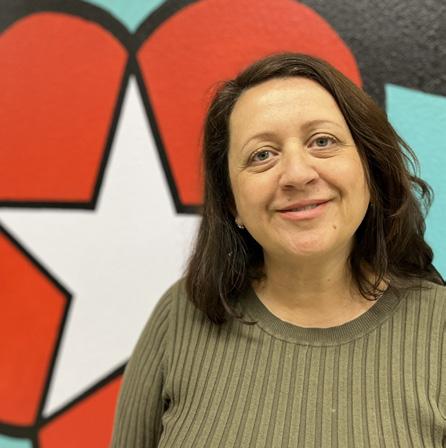

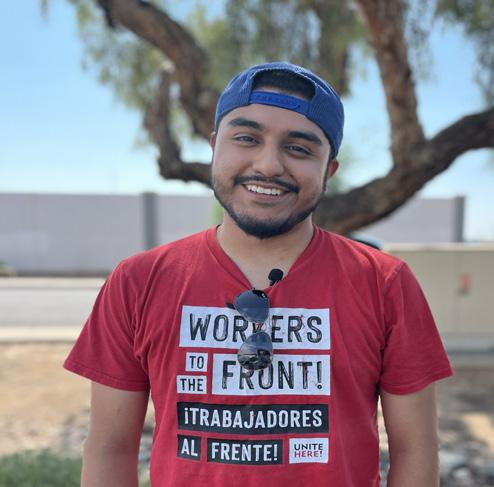

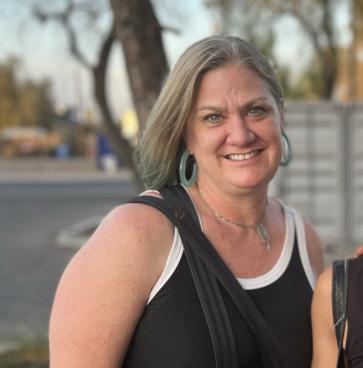



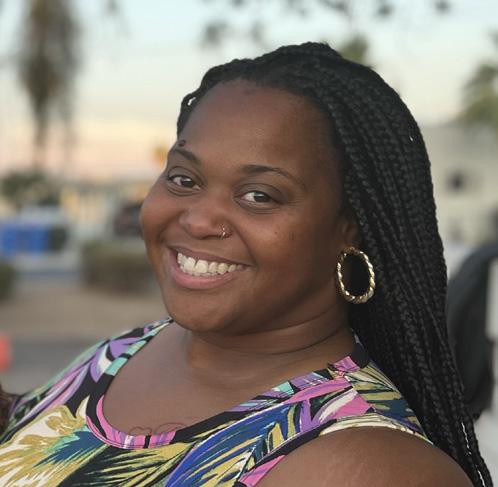





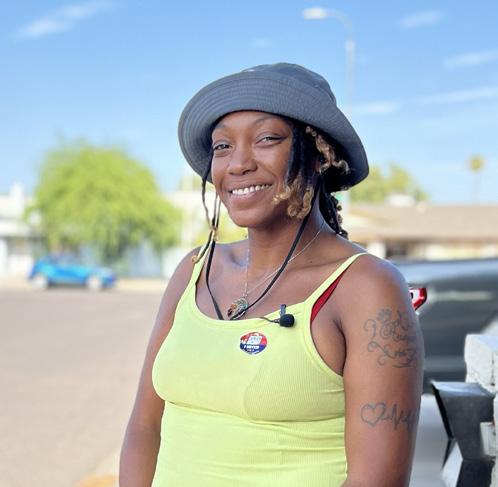

DILLON WILD
MANNY CABRERA ASHANTA CONNER MARISSA SANDERS
CRYSTAL PADILLA GREGORY MOODY
ARECELI KING
MARK GARNER
CARRIE SILVERMAN
YUSIRO NOYOLA
AZRA VARISCIC
XAVIER PRETLOW

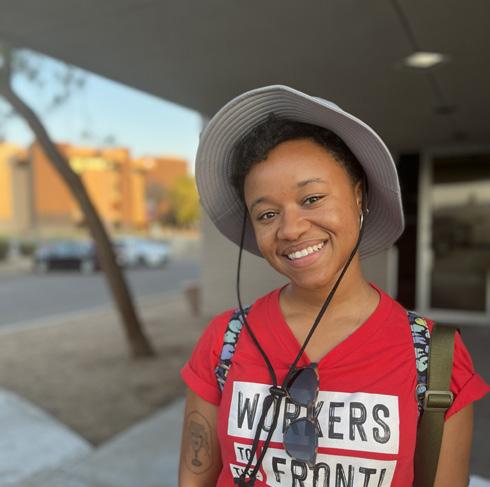

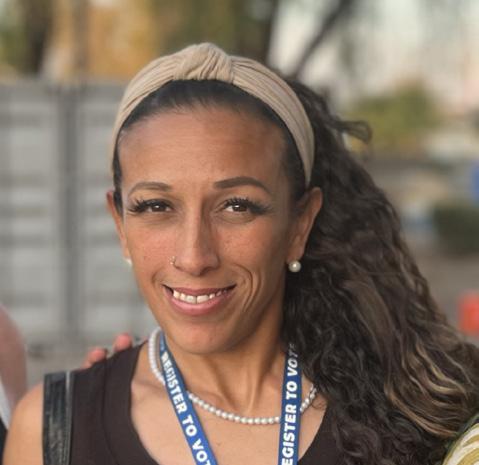

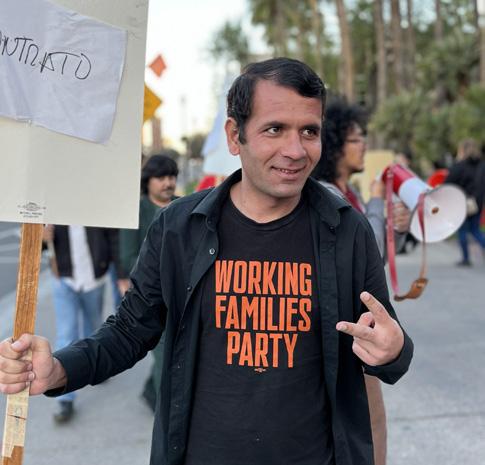

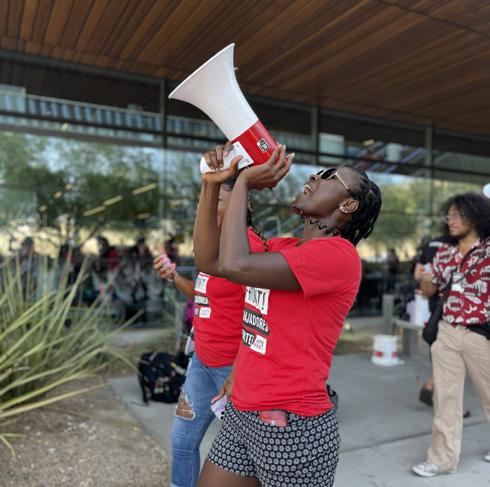

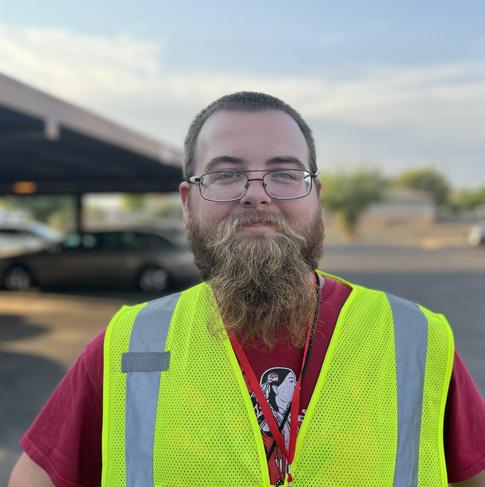

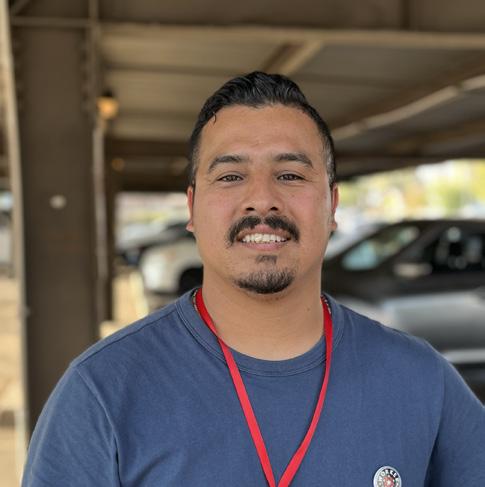

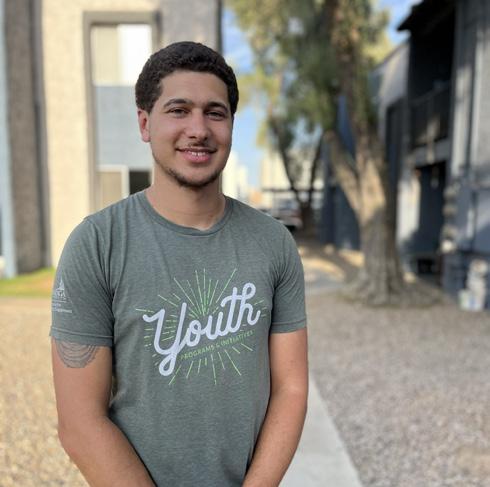

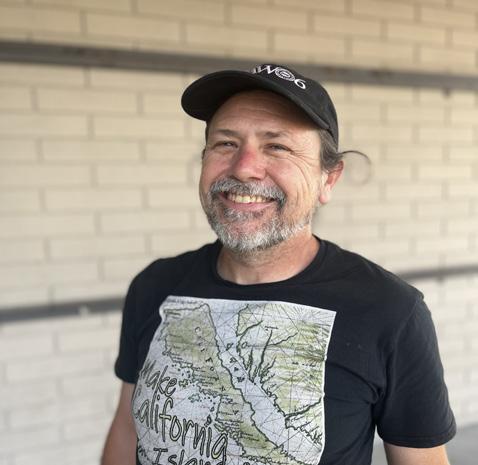

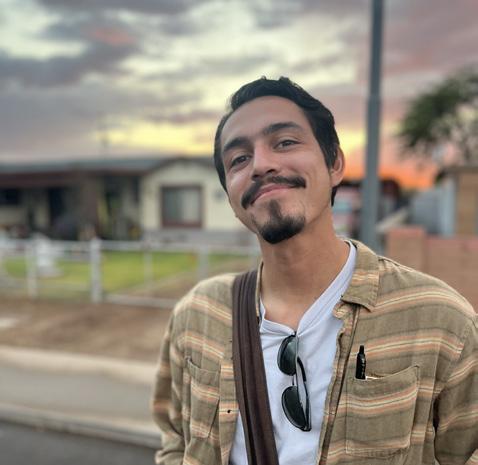

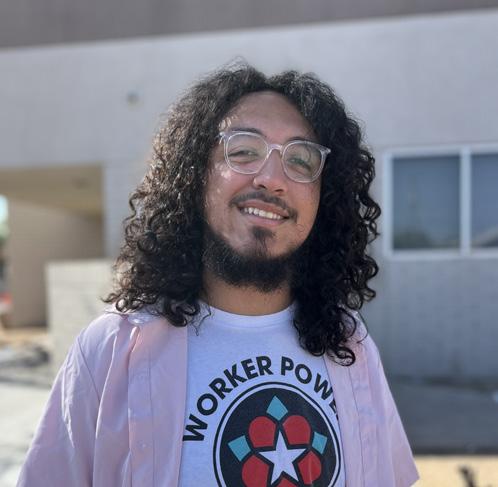

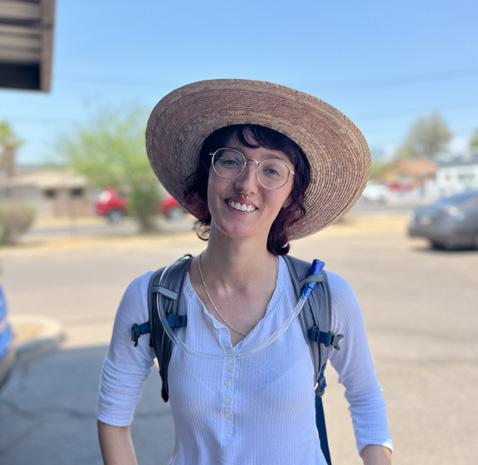

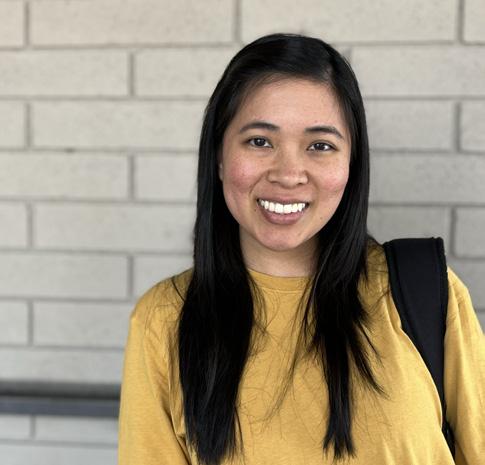


EVA KARRABI
AICHA TAHIROU DEION ROBERTSON
SUNARI WEAVER
KEN HAMILTON
DAVID BORG
ESRAR SABIR
BASH HERRERA
DANIEL ESPINOZA
DAVID BONILLA
TAMMY DANG
SARAH COVEY
STUDENT SPOTLIGHT

ESRAR SABIR FIELD ORGANIZER

Esrar, a Worker Power field organizer, served as a translator for the U.S. Army during the troop withdrawal from Afghanistan, a role that put his life at risk and forced him to seek refuge in the U.S. Like many Afghan refugees who served with or assisted the U.S. military, he had to escape the Taliban, coming to the U.S. under the Special Immigrant Visa (SIV) program on humanitarian parole. Due to the way these programs are structured, his legal status under this visa is temporary and has to be renewed with the immigration office in order for him to remain in the country.
In Arizona, Esrar has become a key leader at Worker Power in worker organizing and voter mobilization. He graduated from the Worker Power Leadership School and quickly emerged as one of the top organizers for voter registration efforts. This past year, Israr played a crucial role in turning out voters, particularly assisting Arabic-speaking voters who struggled with ballot access due to language barriers.
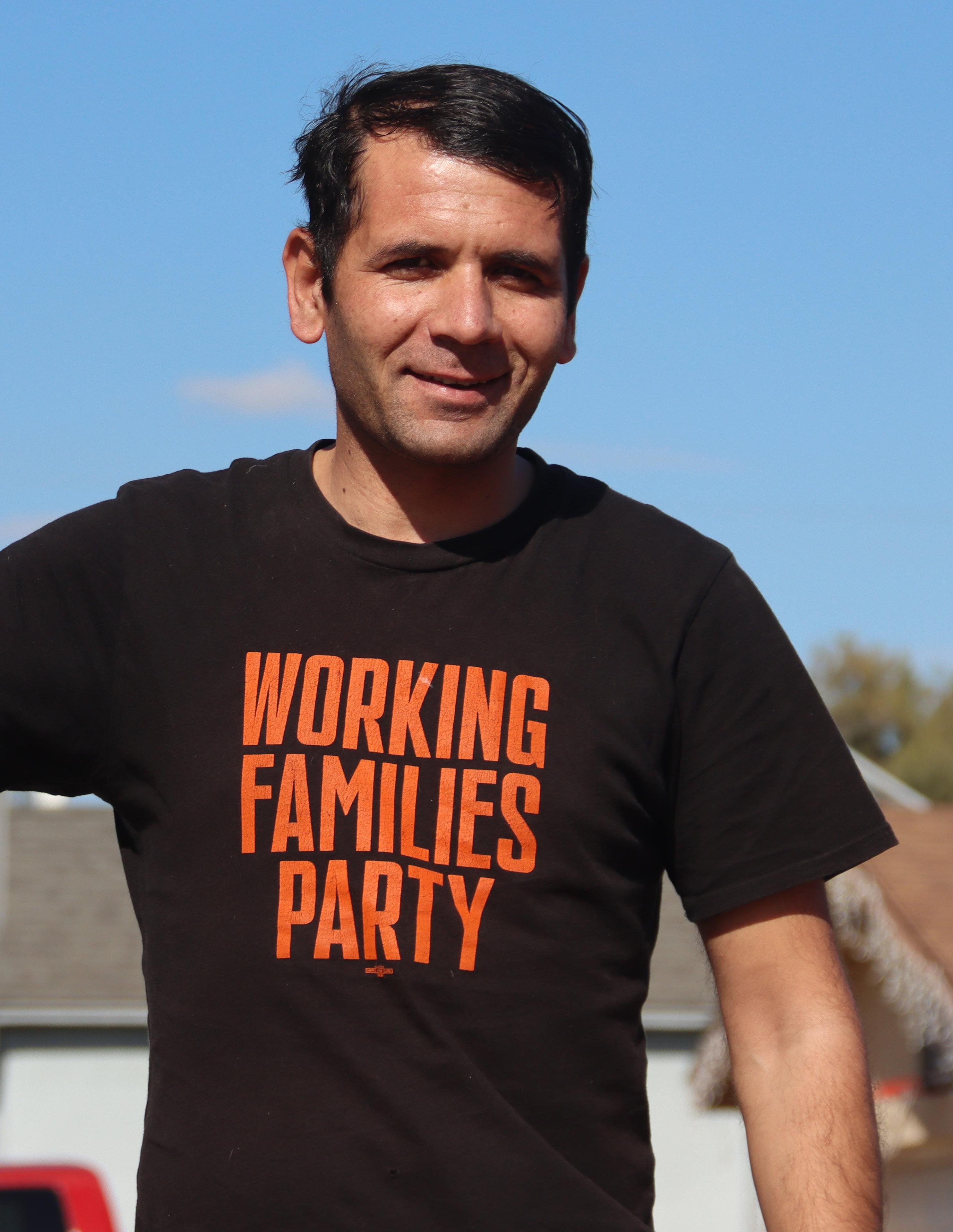
However, Esrar and other Afghan refugees have faced severe challenges under the current administration. Immigration systems, including appointment tracking platforms, have failed them—platforms they used to track appointments needed to renew their work permits and visas have vanished without explanation. This has left Israr in an uncertain legal situation despite his service to the U.S. and his continued contributions to the community.
Esrar is not alone—over 70 Afghan refugees who work at the Sheraton hotel in Phoenix are in the same precarious position. Without work permits, they face the threat of termination, jeopardizing their livelihoods and stability. Israr remains steadfast, advocating for his community, organizing workers, and ensuring that their voices are heard in both the workplace and at the ballot box. His story is a powerful reminder of the ongoing struggles faced by refugees and the need for policy solutions that protect those who have sacrificed for this country.
WORKER ORGANIZING &

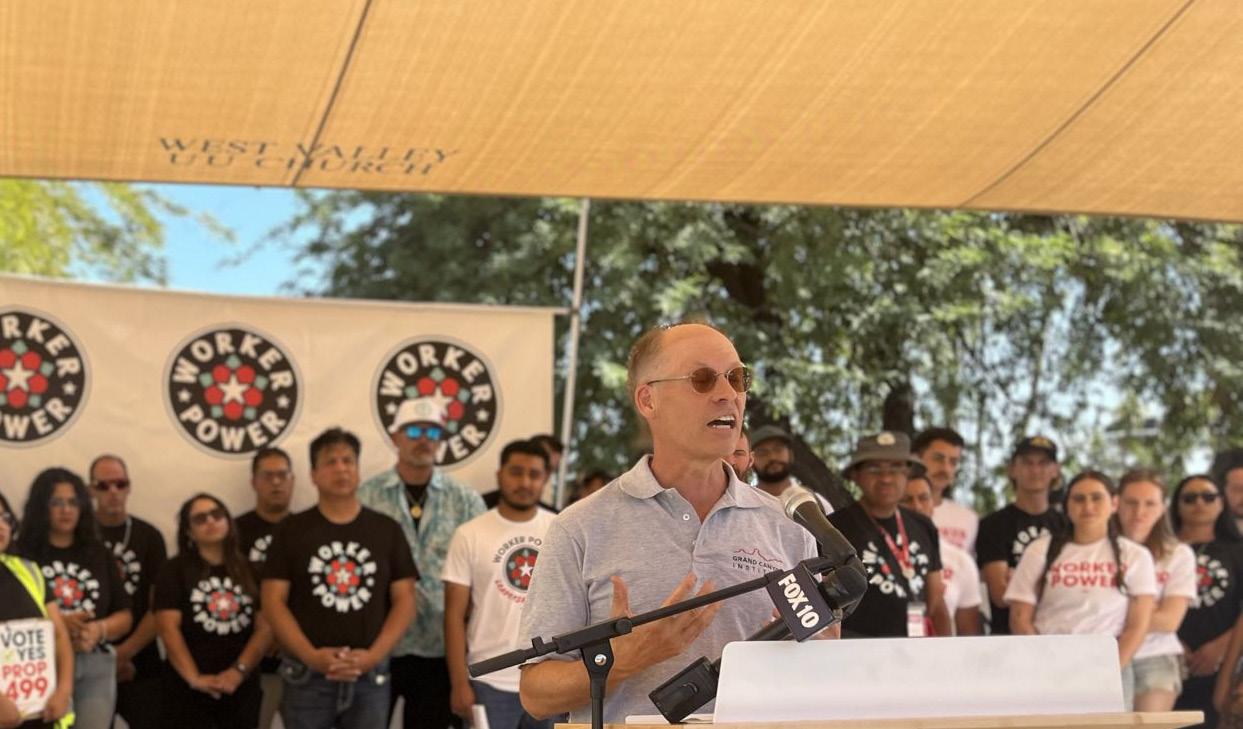
fighting for equal opportunity
In early 2024, Worker Power Institute launched an economic and racial justice campaign mobilizing hundreds of workers for public hearings and a civil disobedience action exposing racial discrimination at SSP America, the second-largest food contractor at Phoenix’s Sky Harbor Airport.
This campaign was driven by findings from our report conducted with the Grand Canyon Institute, One Job Is Not Enough: Working Poverty at the Sky Harbor International Airport, which revealed widespread economic insecurity: 44% of workers reported very low food security and difficulty paying rent or utilities. It also exposed systemic racial disparities—80% of Black workers earned under $800/week compared to 40% of white workers. Along with a complaint filed by the Arizona Attorney General regarding the SSP discrimination against Black workers, our efforts helped show that stronger protections were needed for African American food service workers at Sky Harbor.
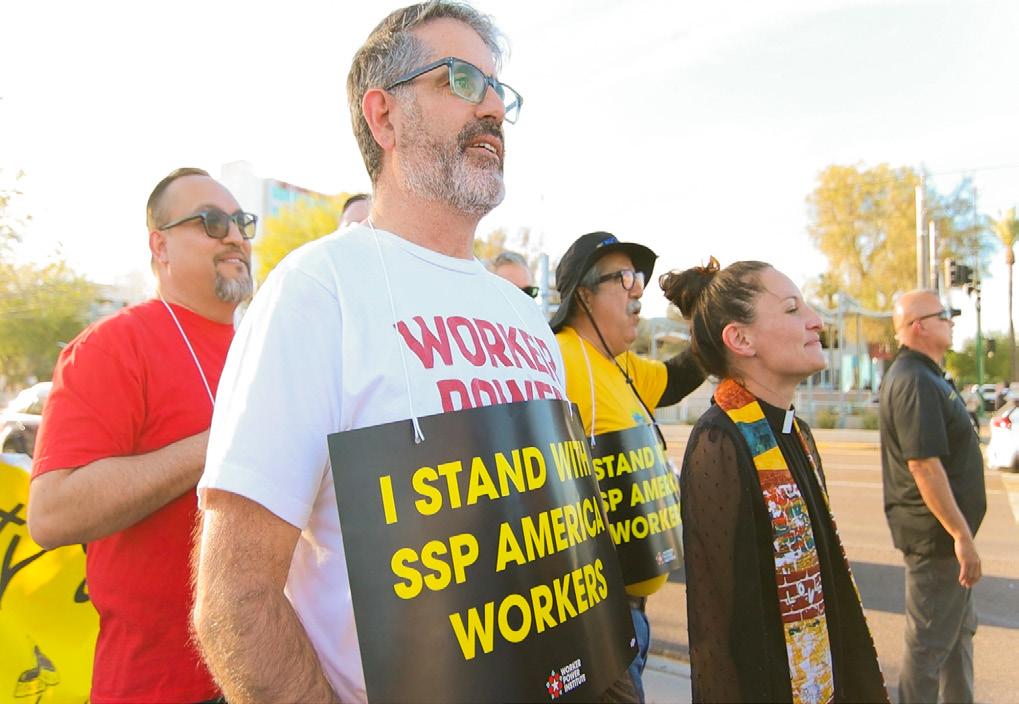

Fighting for fair wages & WORKER’S RIGHTS
In addition to our work at Sky Harbor, Worker Power Institute launched a living wage campaign in Glendale, Arizona. In July 2024, we submitted 8,900 signatures—nearly 50% more than required—to qualify the Hotel Workers Protection Act for the November ballot. The measure proposed a $20 minimum wage, safe workload limits for room attendants, and required hotel service charges to go directly to workers—policies aimed at poverty wages, unsafe conditions, and unfair pay that disproportionately affect women and workers of color.
Although the City of Glendale initially blocked the measure, Worker Power Institute successfully challenged the decision in court and won ballot access. While the initiative failed to pass under heavy opposition from city officials and industry lobbyists, it marked a critical intervention in a rapidly growing hospitality hub and built a foundation for future organizing.
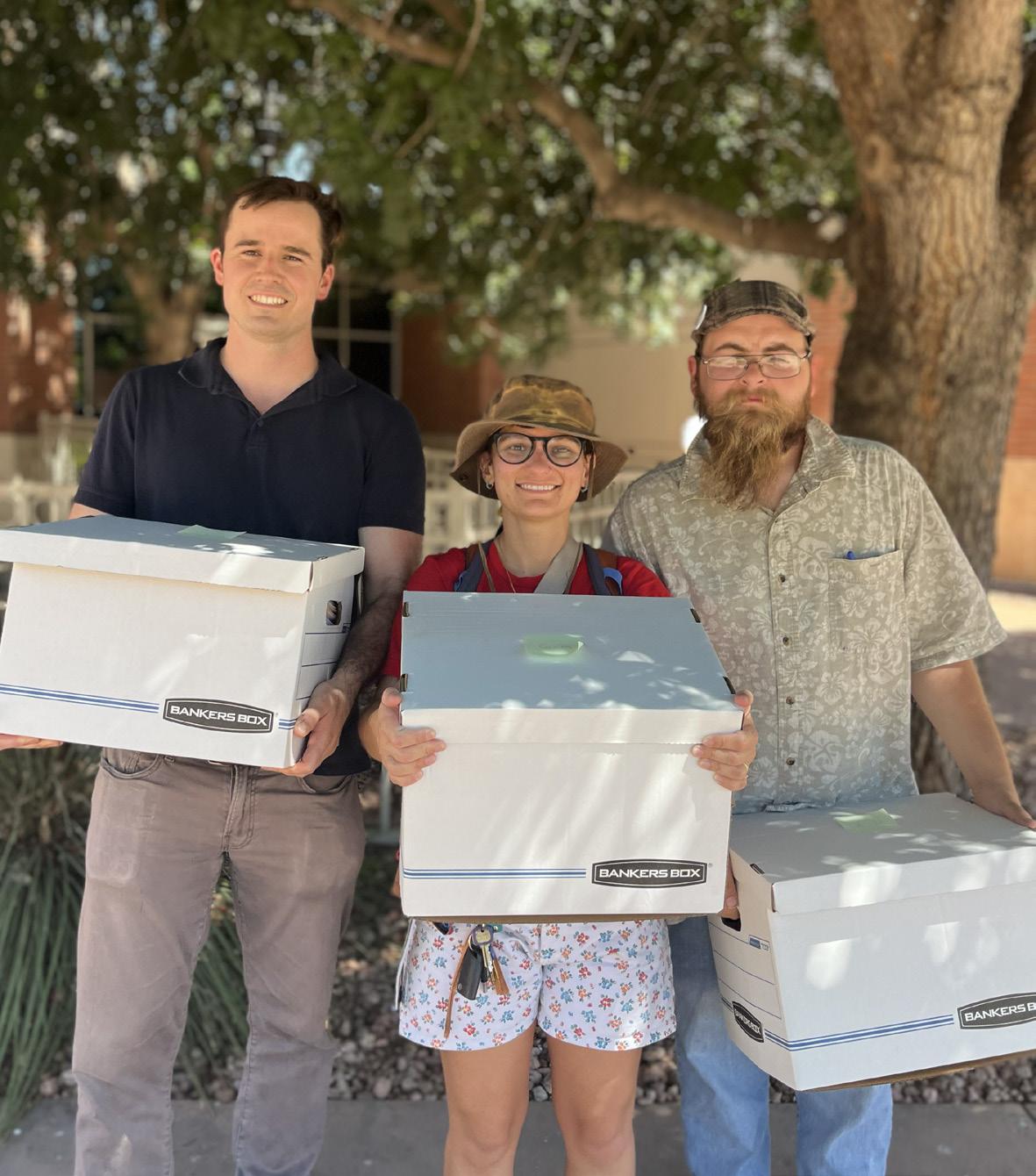
Throughout 2024, Worker Power Institute’s campaigns at Sky Harbor Airport and in the City of Glendale educated the public on the broad economic benefits of raising wages, highlighted the housing and homelessness crisis for working families, and mobilized tens of thousands of voters. Most importantly, we gave working people something to vote for and sparked values-based conversations that will power future engagement and deep organizing work in Greater Phoenix.
CORPORATE ACCOUNTABILITY & ECONOMIC JUSTICE

Transparent and responsible development
Worker Power Institute has a strong record of advocating for responsible development by challenging elected officials to prioritize working people by opposing tax breaks for billionaire developers and pushing for transparency and public input in economic policy at the municipal and state levels.
In 2024, following major wins in Tempe, Arizona—where we stopped $650 million in tax handouts for the proposed Arizona Coyotes arena and entertainment district development—we expanded our advocacy to Glendale. There, we challenged the development agreement for Arizona’s largest luxury project, VAI Resort, which included a 25-year tax abatement but did not contain clearly defined community benefits to offset those abatements. By collecting enough signatures to refer the agreement to the ballot, and by filing a lawsuit declaring that the abatement violated Arizona’s gift clause, Worker Power Institute stopped a $100 million tax break to VAI, ensuring that those same tax dollars would go to schools and other public services.
At the end of 2024, Worker Power Institute organizers also collected sufficient signatures from Glendale residents to refer to the ballot a zoning change that would allow VAI to build a corporate office and parking lot on a 10-acre parcel meant for park space–zoning change that represents another giveaway to VAI by the Glendale City council and a possible exacerbation of the already-intense heat-island effect that is a contributing factor in Glendale recently being named the least sustainable among the 100 largest cities in the U.S.
Green Jobs Arizona
Through Green Jobs Arizona—a coalition founded in 2024 by Worker Power Institute, Jobs to Move America, Unite Here Local 11, United Auto Workers (UAW) Region 6, and the UAW Center for Manufacturing a Green Economy—we have started organizing in Arizona’s emerging technology manufacturing sector.
Using community organizing, research, and advocacy, we are working to secure strong Community Benefits Agreements that guarantee local representation, good jobs, and long-term public investment in communities. Our community outreach and education efforts sparked nearly 10,000 conversations with voters in the area, driving significant engagement. In Casa Grande, we secured commitments from 849 voters to stay informed about organizing opportunities around EV manufacturing in their communities. This effort is part of a broader strategy to build lasting community power and ensure that Arizona’s transition to a green economy benefits working people, not just corporations.

Corporate Accountability in Private Equity
Our Corporate Accountability in Private Equity program also combats corporate greed by promoting fair treatment, living wages, and safe working conditions through advocacy, education, and engagement with institutional investors–particularly public worker pension funds. Since the program’s launch in early 2024, Worker Power Institute released a study—Striking Out: Public Pension Funds, Private Equity, and a New Wave of Labor Unrests—highlighting how growing investment in private equity and real estate, driven by short-term profit motives, is fueling labor unrest and financial risk, underscoring the need for stronger investment safeguards.
Following the release of Striking Out, our team held over 30 meetings with public-worker pension fund board members in California, Arizona, New Mexico, Oregon, Minnesota,
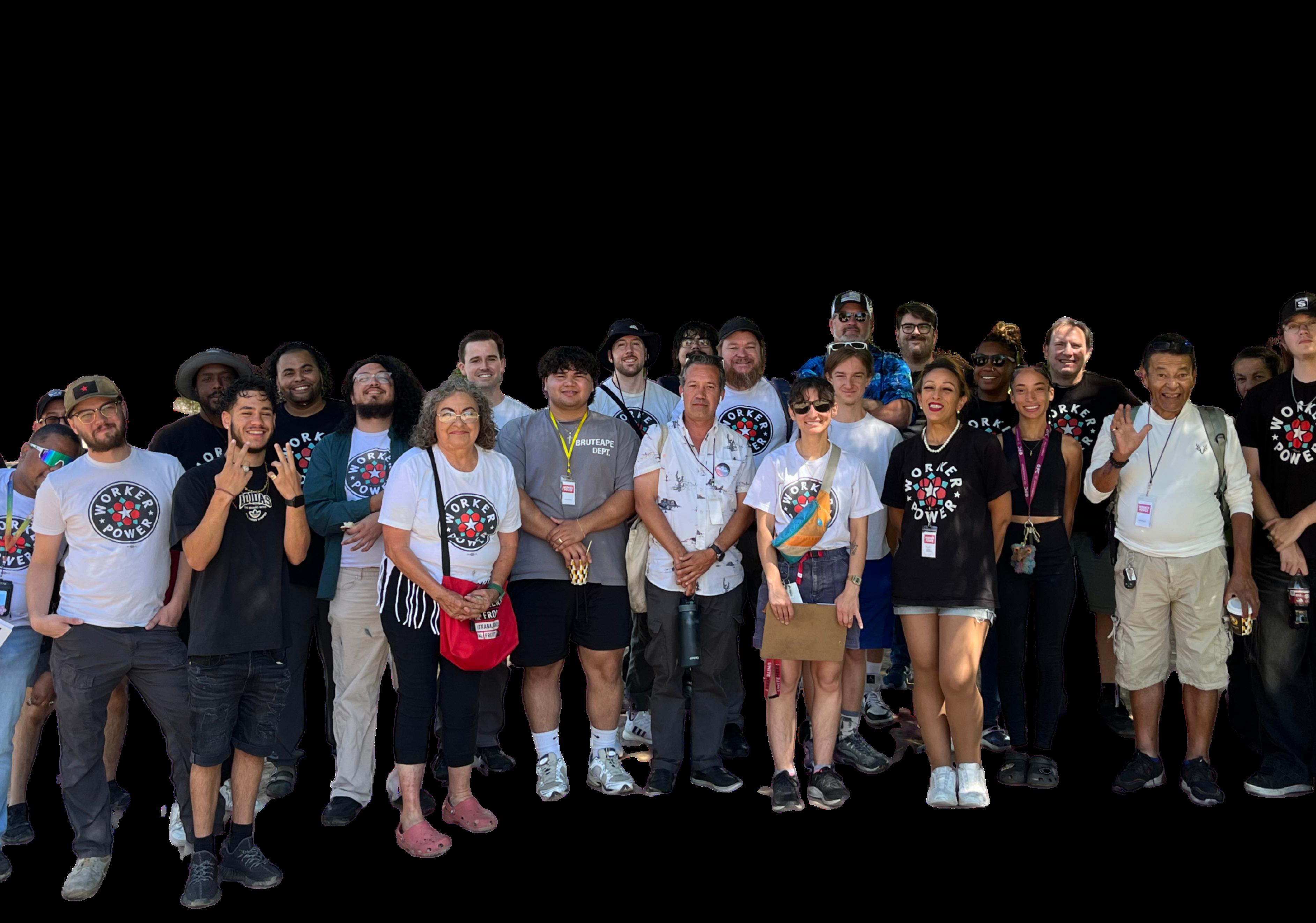
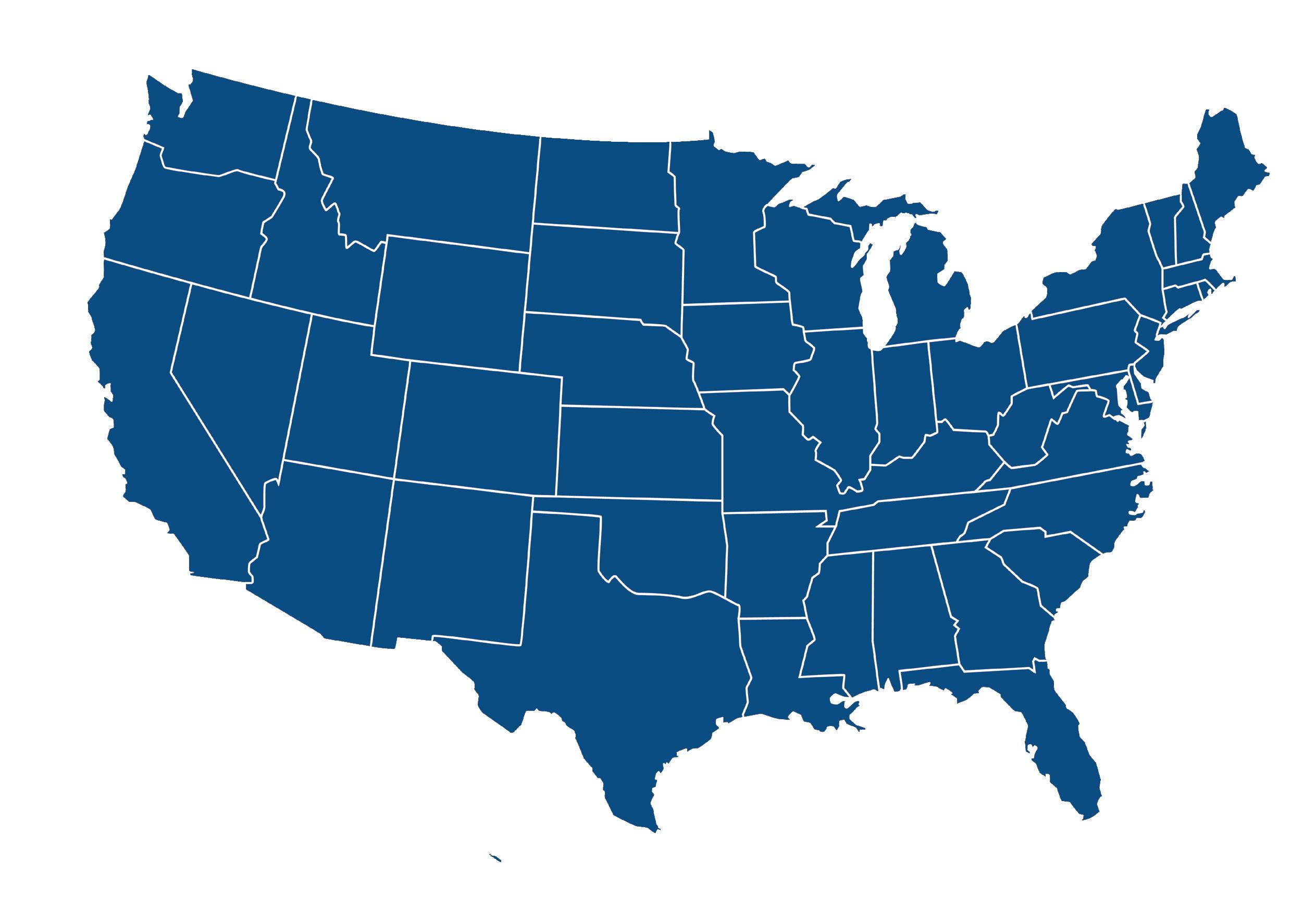



Some Victories!
Worker Power organized 34 Arizona State Legislators to write a letter urging the Arizona State Retirement System not to make further investments with Blackstone until the firm resolves labor disputes at Blackstone-owned hotels.
CalPERS, the world’s largest pension fund, scrutinized investments with Advent International, a private equity firm with over $86 billion under management, due to allegations of sexual harassment and labor violations at its portfolio company Aimbridge Hospitality.
New Mexico’s Treasurer Laura Montoya announced that she would not support further investment with Blackstone, the world’s largest private equity firm managing over $1 trillion in assets, following reports regarding hotel labor disputes and child labor at Packers’ Sanitation Services. The New Mexico New State Investment Council’s engagement with Blackstone led to a public meeting, held after the hotel labor disputes were settled, where Blackstone’s Global Co-Head of Real Estate discussed headline and reputational risks presented by the dispute and how it had addressed the situation.
Read on for an excerpt from “Striking Out: Public Pension Funds, Private Equity, and a New Wave of Labor Unrest”, published in March of 2024

The private equity and real estate investment model, with its short-term investment horizon and emphasis on decreasing labor costs, makes the industry uniquely vulnerable to labor unrest. One academic analysis found that private equity-owned hotels experienced a significant and lasting improvement in departmental profit margins because the firms slash labor costs in the rooms department. Another study concluded that firms subject to institutional buyouts were associated with job losses, lower wages, and lower productivity.
Labor unrest is growing across the country. Strikes increased by 141% from 2022 to 2023, with a total of 24,874,522 individual days of work stoppages, the highest number of lost workdays to labor disputes since 2000.
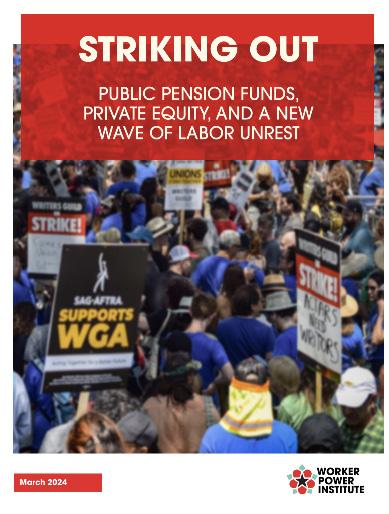
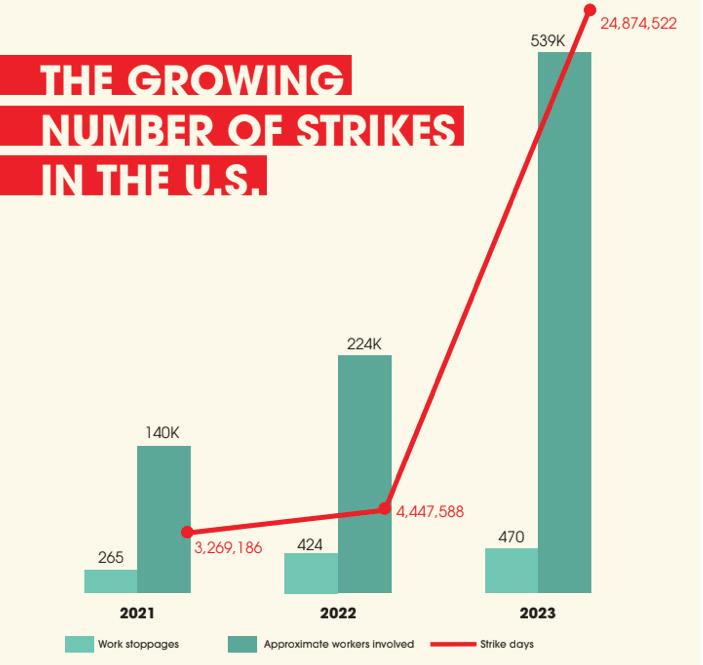
Strikes and work stoppages have very real financial impacts. An analysis of Bureau of Labor Statistics data estimated the average loss to a company facing a strike at between $285.4 million and $344.9 million. The recent six-week autoworkers strike reportedly cost companies $10.4 billion.
Strikes also have indirect impacts. The 2003-2004 grocery strike in Southern California saw a sizeable loss of market share and eventual credit downgrade of the companies by S&P to “its weakest investment grade rating” in 2008, citing the impact on profits from the strike.
Pension funds should strengthen policy to protect investments from the growing risks associated with strikes and labor unrest. Current Responsible Contractor Policies have failed to prevent strikes and adequately mitigate human capital risk.


WORKER POWER STAFF
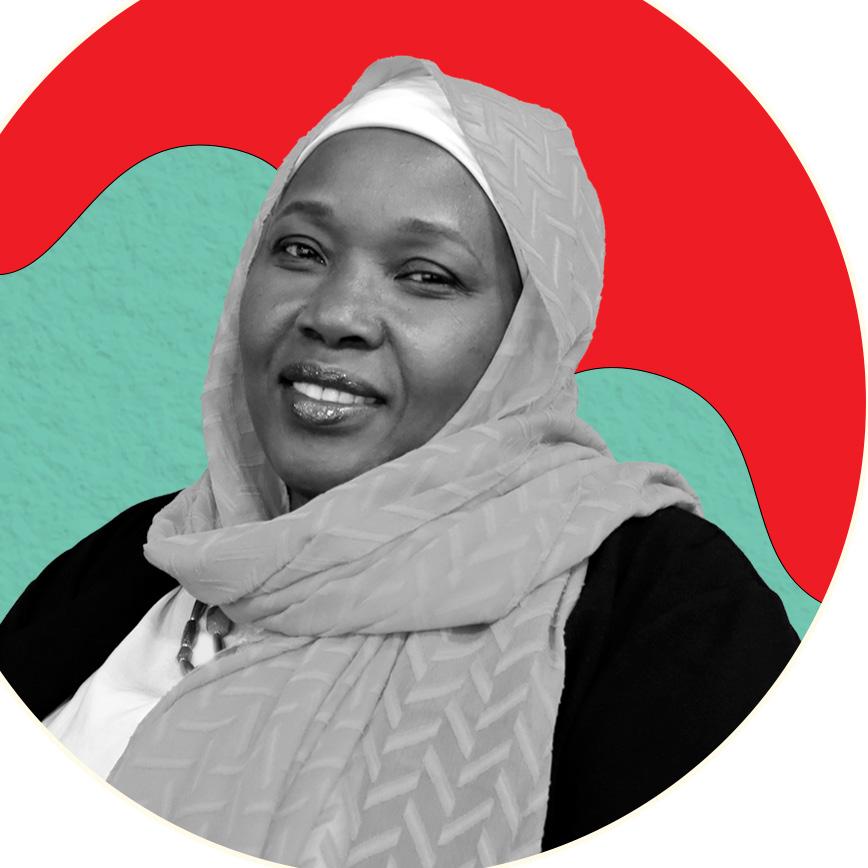
JAWAHER
ABBAS FIELD ORGANIZER
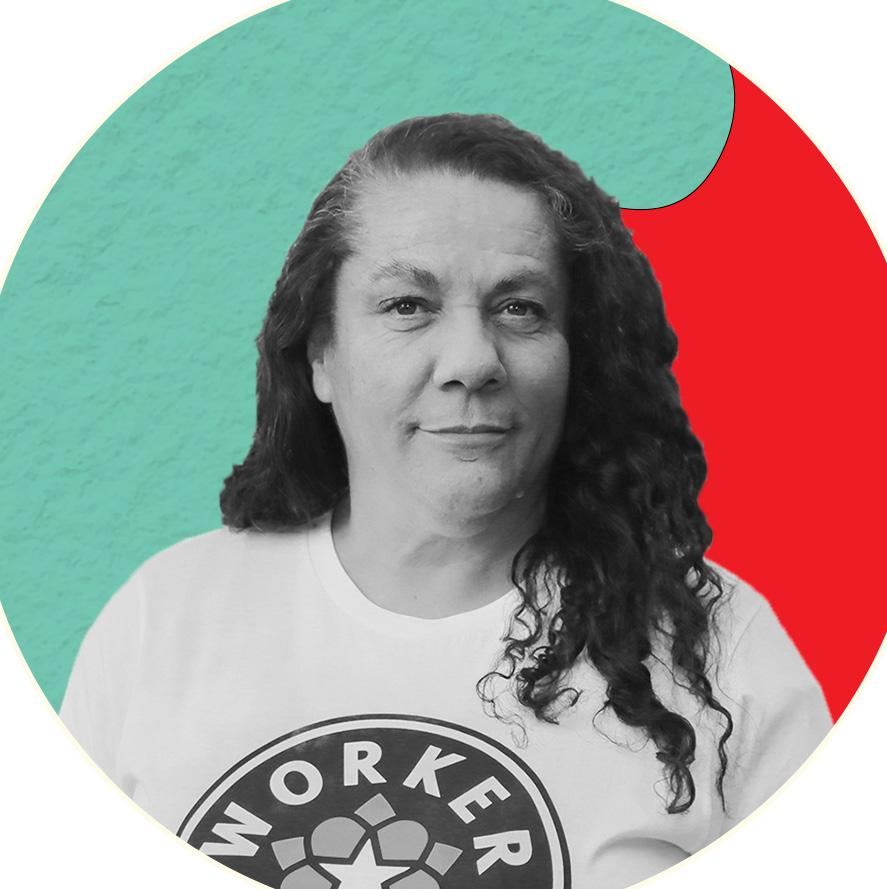
SIGRID BANTLEON FIELD ORGANIZER
Our staff represent a diversity of backgrounds and life experiences which enable them to drive change in communities, hold institutions accountable, and make gains for working people.
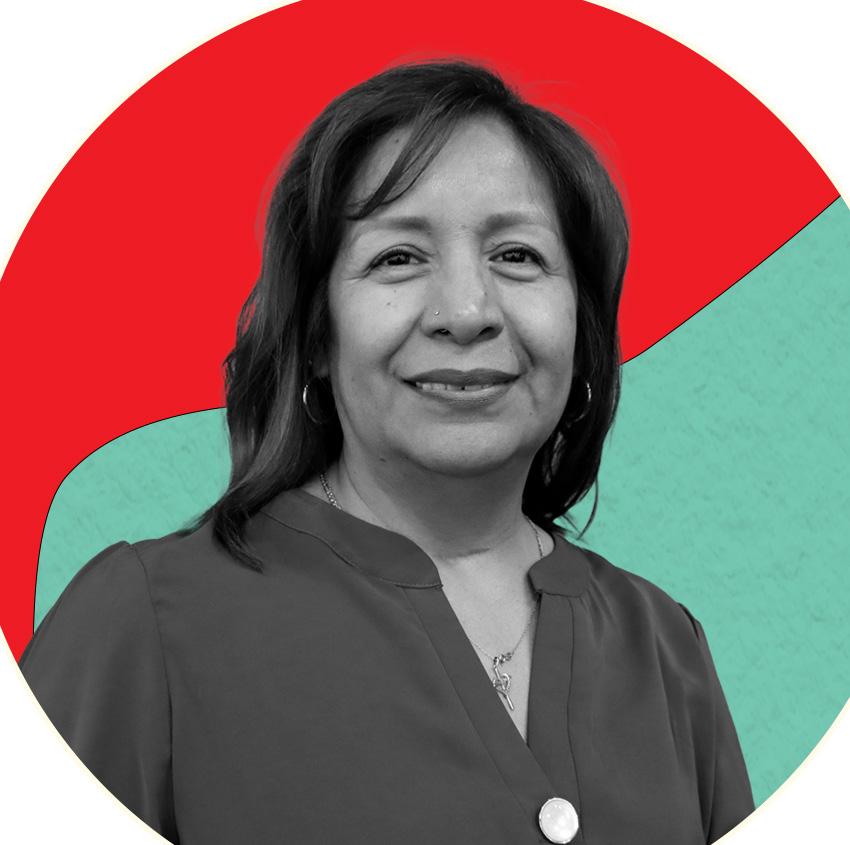
MAGGIE ACOSTA FIELD DIRECTOR

MORNINGSTAR BLOOM COMMUNICATIONS

MICHAEL ANGULO SENIOR RESEARCHER
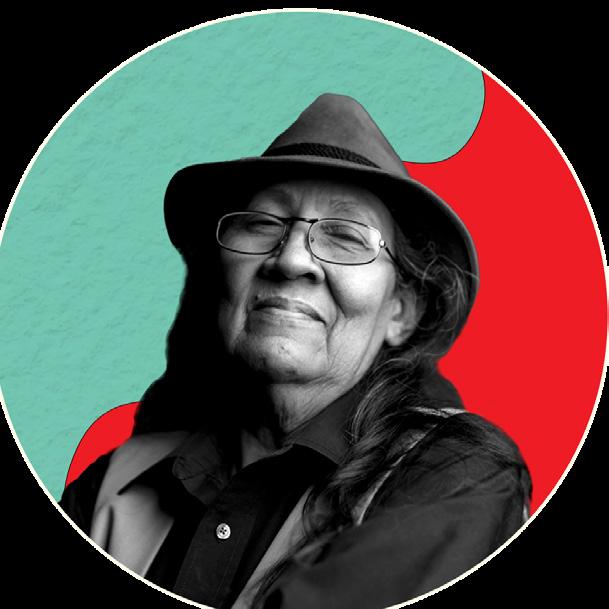
CAT CASTANEDA LOGISTICS ASSOCIATE
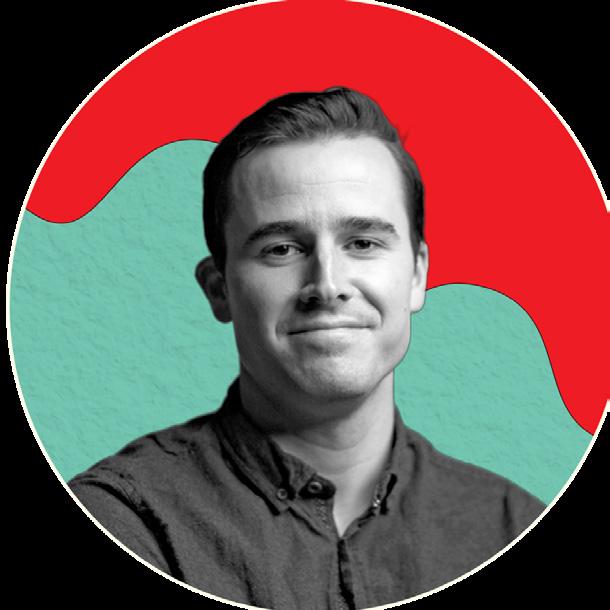
JORDAN GREENSLADE SENIOR FIELD DIRECTOR

MARGARET SHULTZ POLICY ANALYST

AZRA VARISCIC DEVELOPMENT DIRECTOR

MIKE MARTINEZ FIELD ORGANIZER

RACHELE SMITH COMMUNICATIONS
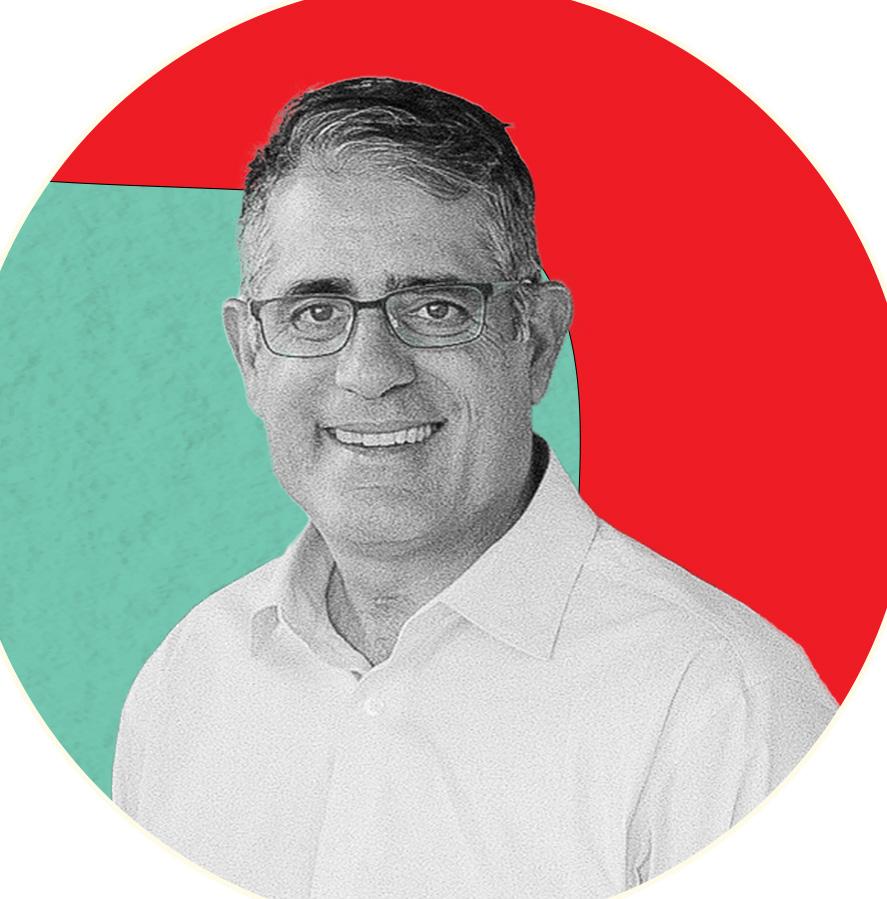
BRENDAN WALSH EXECUTIVE DIRECTOR

ISABEL ROSE OPERATIONS COORDINATOR

KORT TURNER DATA MANAGER

MARILYN WILBUR FIELD ORGANIZER
BOARD MEMBERS

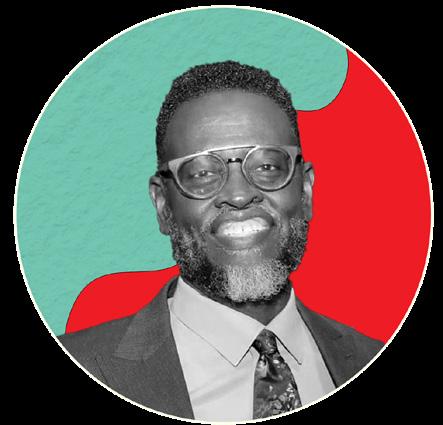


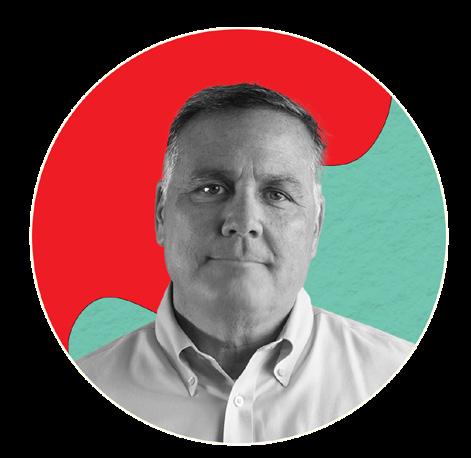
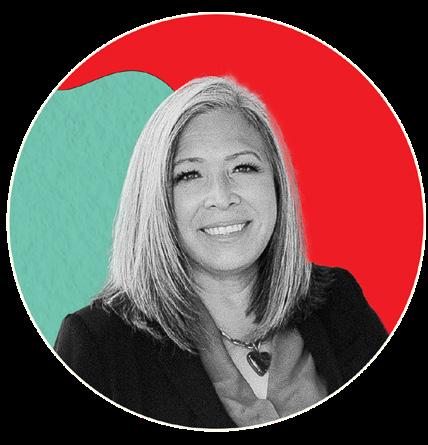

INSTITUTIONAL DONORS
The Alki Fund
The Arkay Foundation
The Barn Road Foundation Force Multiplier
Freedom Together Foundation
The J.M. Kaplan Fund
One Arizona PowerSwitch Action
State Infrastructure Fund/NEO Philanthropy
The Sunflower Foundation
The Winslow Foundation
AUBREY BARNWELL TREASURER
BETTY GUARDADO
IAN DANLEY
BEATRIZ TOPETE BOARD CHAIR
JIM MCLAUGHLIN
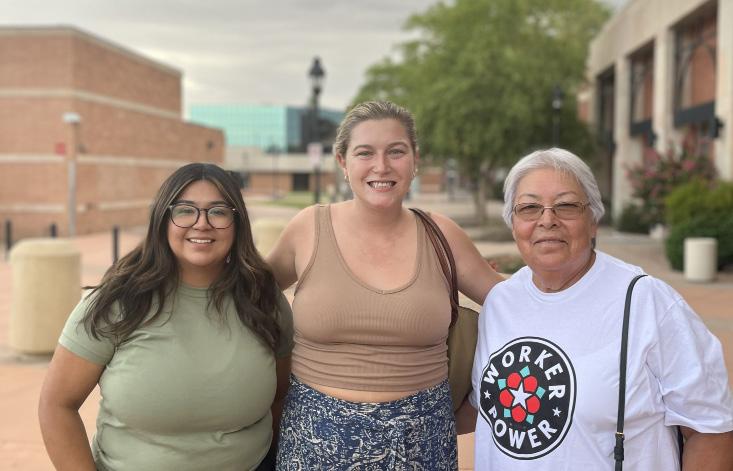
Thank you to Worker Power Institute’s institutional donors for your generous support in 2024!


